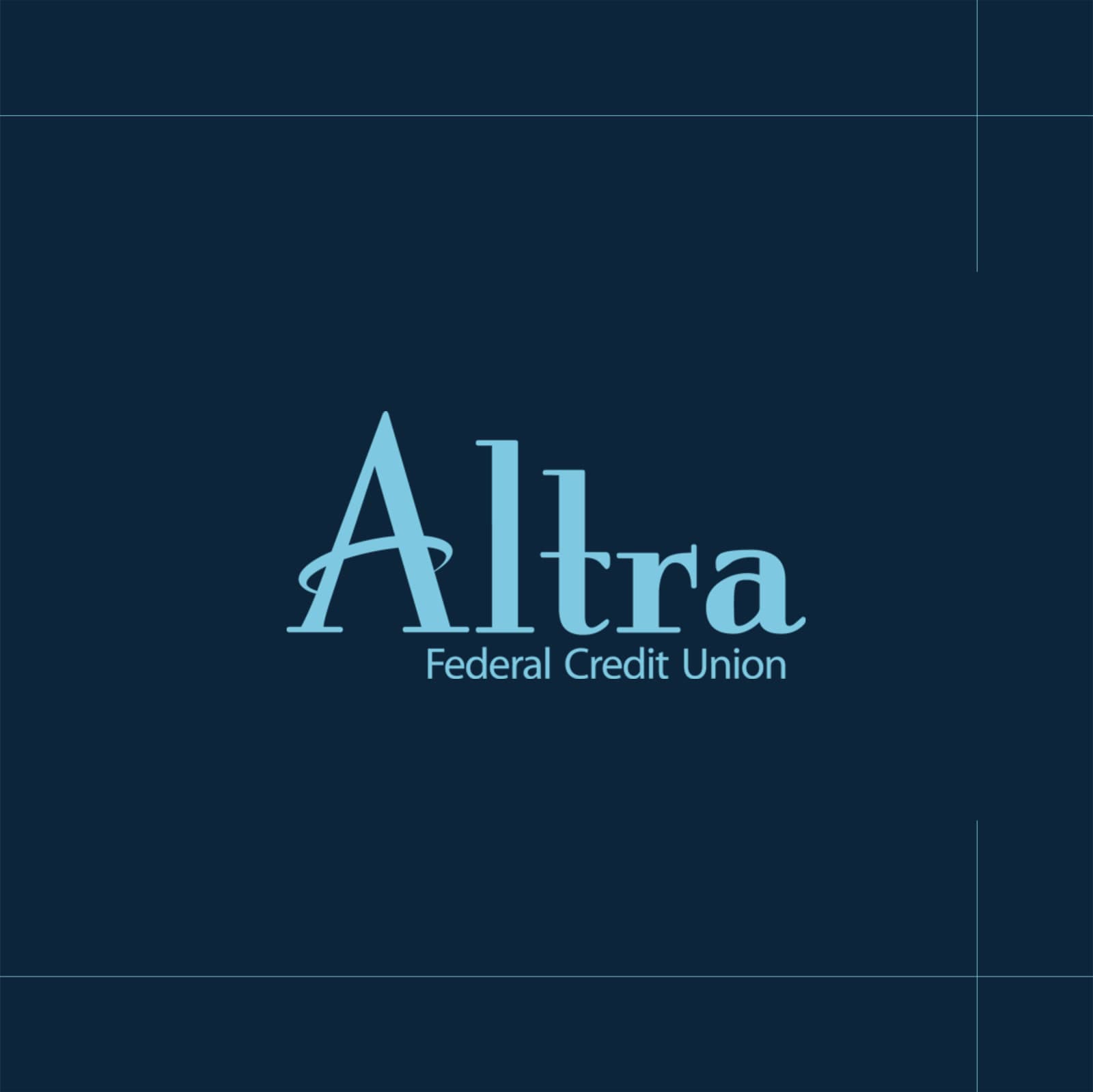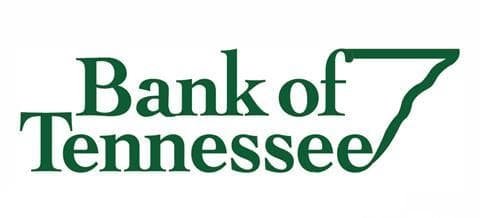Japanese bank group implements the nCino Platform as digital foundation to accelerate new mortgage business

Japanese bank group implements the nCino Platform as digital foundation to accelerate new mortgage business

The financial services landscape is on the brink of a significant transformation, driven by the rapid integration of artificial intelligence (AI). From streamlining operations to enhancing regulatory compliance, AI is reshaping how banks and financial institutions approach lending, offering a competitive edge in a challenging environment.

Total Revenues of $144.1M, up 13% year-over-year Subscription Revenues of $125.6M, up 14% year-over-year

nSight 2025 brought together the brightest minds in financial services for three transformative days of innovation, connection, and networking in Charlotte, NC. From the main stage to intimate breakout sessions to the Community Lounge, nCino leaders and customers shone a spotlight on the dynamic evolution of the industry and how nCino is powering a new era in financial services. Here are the five most powerful themes that emerged from this year's event:

ThinCats, a leading alternative finance provider supporting mid-sized SMEs across the UK, has achieved remarkable digital transformation through its five-year partnership with nCino.

Key nCino Platform enhancements released to help banks, credit unions, and IMBs gain a competitive advantage through intelligence-driven automation.Company launches nCino Research Institute to deliver economic insights and actionable strategies for banking growth.

The building society sector continues to demonstrate remarkable resilience and momentum, accounting for 72% of mortgage market growth between April and September 2024.

nCino expands presence in Europe with its first customer in Luxembourg

The financial services landscape is rapidly evolving, challenging institutions to keep pace with emerging risks, shifting client expectations, and growing data volumes.

In today's increasingly complex economic landscape, financial institutions face mounting pressure to adapt to policy changes that significantly impact their lending portfolios. The current administration's implementation of tariffs presents both immediate challenges and long-term considerations for lenders across the United States. With rising economic policy uncertainty weighing on business fixed investments, financial institutions must prepare for potential credit deterioration and adjust their risk management strategies accordingly.

Q4 Total Revenues of $141.4M, up 14% year-over-year Fiscal Year 2025 Total Revenues of $540.7M, up 13% year-over-year Q4 Subscription Revenues of $125.0M, up 16% year-over-year Fiscal Year 2025 Subscription Revenues of $469.2M, up 15% year-over-year

CU1 to implement nCino across Commercial, Consumer & Indirect Lending to empower teams to serve members more quickly and efficiently.

The new integration application empowers financial institutions to access core banking data, streamline account holder interactions, and enhance service delivery directly within Zoom’s Contact Center.

nCino expands presence in Europe with its first customer in the Czech Republic

Japanese regional bank digitizing its mortgage lending process with nCino to increase employee efficiency and shorten loan cycle times

As community banks and credit unions navigate a constantly evolving financial landscape, a few challenges become clear. From delivering modern member experiences to understanding the role of legacy systems in a digital world, it’s crucial that community banks and credit unions find solutions that best serve their borrowers.

Transformational Innovation for Credit Union SuccessCredit unions strive to provide meaningful financial services to their members while navigating operational complexities such as compliance, risk management, competition, and evolving member expectations. Enter nCino, a technology partner uniquely equipped to address these challenges through our unified cloud-based platform.

nCino will report financial results for its fourth quarter and fiscal year ended January 31, 2025, after the market close on Tuesday, April 1, 2025.

To buy or to build? That’s the debate in today’s evolving landscape.

Market-leading data integration technology enables nCino toaccelerate project timelines and offer increased connectivity and data sources across onboarding, loan origination, account opening and more

nCino announces appointment of Justin Nyweide to Board of Directors.

Pierre Naudé Appointed Executive Chairman of the Board

The 2025 banking landscape is already evolving faster than ever, thanks to rapid technological advancements, shifting customer expectations, and uncertain economic conditions. To stay competitive, forward-thinking financial institutions must not only keep up, but also anticipate what's next.

The banking industry stands at a critical inflection point. As we advance through 2025, artificial intelligence has evolved from experimental technology to a strategic imperative reshaping how financial institutions operate, serve customers, and manage risk.

Like many businesses across the U.S., community and regional banks face challenges stemming from economic fluctuations, regulatory reforms, and shifting consumer preferences. To navigate these headwinds, they’re leveraging their unique strengths, such as personalized customer interactions and local market insights, and implementing innovative technologies like the nCino Consumer Banking Solution.

This November, nCino hosted its annual APAC Summit in Sydney, Australia, an event dedicated to showcasing the latest technology and insights in banking. The Summit featured leading industry experts and nCino executives with valuable insights into how financial institutions are harnessing intelligence to enhance personalized and efficient banking experiences. Here are the four key themes shared at this year’s Innovation Summit:

As we look towards 2025, many analysts and industry experts are sharing observations on the current state of artificial intelligence (AI) and their predictions for the future. As AI use cases continue to evolve across industries, it’s critical for financial institutions (FIs) to evaluate their own AI journeys. Are they ahead of, in step with, or falling behind their competitors?

• Total Revenues of $138.8M, up 14% year-over-year
• Subscription Revenues of $119.9M, up 14% year-over-year
• GAAP Operating Margin of (1)%, up ~1,000 basis points year-over-year
• Non-GAAP Operating Margin of 20%, up ~350 basis points year-over-year

nCino is proud to share our FY24 Environmental, Social, and Governance (ESG) report. This report shares our progress toward building a sustainable business and our dedication to responsible practices in line with our mission.

In a world where the financial industry continues to evolve rapidly, financial institutions need to do the same. One way to maintain your edge is by embracing a balance of automation and augmentation. This approach enhances operational efficiency, optimizes risk management, and revolutionizes the experience for both banker and client.

Founded in 1949 in Wisconsin, Marine Credit Union (MCU) has grown to serve over 76,000 members across Wisconsin, Minnesota, Iowa, and Illinois. With a steadfast commitment to the community, MCU strives to make financial fulfillment accessible to everyone. By guiding individuals from financial challenges to achieving ownership and giving back, MCU empowers its members to lead better lives.

In today’s financial landscape, digital transformation has become an essential priority for financial institutions (FIs), and credit risk management is no exception. Despite economic challenges, many banks are making significant investments in advanced technologies to fast-track their digital transformation. While cost pressures are considerable, the potential of technology to enhance automation and efficiency continues to drive these investments forward.

nCino and FullCircl offering for commercial banks in the UK and across the European Continent creates an end-to-end client lifecycle management experience with integrated acquisition, onboarding, KYB, KYC, and rules-based monitoring

A hackathon is a collaborative coding event where individuals or teams join forces to create innovative solutions and solve real-world problems facing bankers. Participants brainstorm and build prototypes of their solutions within a short amount of time, typically ranging from one day to one week. At the end of the event, teams present their projects to the wider company.

Artificial intelligence (AI) and machine learning (ML) are transforming how financial institutions approach many traditional banking processes. When it comes to AI in the financial services industry, the concept of explainability—i.e., the ability to clearly communicate the process behind AI’s decision-making and understand the model’s inner workings—is of the utmost importance.

Allied Irish Banks (AIB), a leading Irish bank with 3.3 million customers and the largest branch network in the country, is using the nCino platform to transform its credit processes and improve lending across Asset Finance and Leasing, SME, Corporate and ESG.

Japanese bank to increase operational efficiency and enhance value for corporate customers and employees with the nCino Platform

Kiwibank is the largest New Zealand-owned bank, currently serving over one million customers. As a leader in the banking industry, Kiwibank is dedicated to being customers’ first choice for banking needs, evidenced in their 5.2% growth in main bank customers and 9.3% increase in total lending during fiscal year 2024. With over 8,000 new homes financed and 5,000 customers securing better home loan deals in FY 24, the bank is deeply committed to enhancing customer experience and outcomes.

Being a leader in the financial services industry requires a seamless approach to innovation and efficiency. One of the crucial elements to success is the integration of automation and augmentation into credit portfolio management, as these tools have the ability to transform operations, manage risk, and improve both banker and client experiences.

Artificial intelligence is revolutionizing many traditional financial services, including credit decisioning. The evolution from traditional statistical models to AI-driven approaches marks a transformative shift in the financial industry. With AI integration, financial institutions will experience a fundamental change in how they assess and manage risk, ushering in a new era of efficiency and innovation.

Rhode Island-based community bank sees digital account opening process considerably reduced and cuts in-branch account opening time with nCino Consumer Deposit Account Opening

In the evolving landscape of commercial banking, merging traditional services with modern technology is essential.

Guaranteed Rate, one of the US’s largest retail mortgage lenders, has been helping homeowners with purchase loans and refinances for more than 20 years. With headquarters in Chicago, Guaranteed Rate has more than 10,000 employees nationwide across 850 office locations.

The consumer lending market has seen monumental shifts over the last decade. From the rise of fintechs to new regulatory measures, these changes have reshaped how we borrow and lend. Understanding and responding to trends in the market is crucial for financial institutions of all sizes.

The rise of artificial intelligence (AI) is transforming how financial institutions (FIs) approach traditional banking processes, but not all FIs are prepared to take advantage of this game-changing technology. Leveraging AI is not a one-off task, but a continuous cycle of assessing, enhancing, and improving data quality for an effective strategy. For this reason, the journey AI optimization can seem daunting.

The mortgage industry has seen some significant changes in recent years with the introduction of digital technology solutions. Organizations are increasingly turning to technology for avenues of competitive advantage, leading many companies into a state of flux as they adjust their business model and digital mortgage strategies to create and maintain profitability with long-term success.

In Australia’s ever-evolving financial landscape, customer-owned banks are embracing technology to redefine their business operations and enhance customer experiences. Summerland Bank and P&N Group are two banks leading this charge, partnering with nCino to drive digital transformation, streamline operations, and enhance customer service.

In the rapidly evolving lending landscape, caused in part by the bank failures of 2023, credit portfolios are facing significant stress and heightened challenges, including rising default rates, fluctuating interest rates, and economic uncertainty. Coupled with strict regulatory demands for risk differentiation and portfolio diversification, these pressures are exposing the limitations of current credit portfolio monitoring processes, which are often static, reactive and subjective. As a result, financial institution (FI) leaders are rethinking their credit portfolio management practices.

Headquartered in Quebec, Canada, Desjardins Group is the largest cooperative financial group in North America. Desjardins currently provides a full range of financial and insurance services to 7.7 million members and clients.

Artificial intelligence (AI) and machine learning (ML) are transforming how financial institutions approach credit decisions and traditional banking processes. By incorporating AI into the credit decisioning process, financial institutions can help create a more inclusive, intuitive, and impactful financial services landscape.

One of nCino employees' favorite ways to give back is through our annual fundraiser, Extra Life, supporting the needs of the Children's Miracle Network Hospitals.

In early June, nCino employees gathered for One nCino Day, a global event that embodies our vibrant culture and celebrates the unique individuals who help shape it.

Top 25 European bank implements nCino to support its transformation strategy

As the financial services industry continues to evolve, efficiency has become a top priority. In order to maximize efficiency, stay competitive, and unlock new value streams, financial institutions (FIs) are leveraging the power of artificial intelligence (AI) throughout their business processes.

UK specialist bank to eliminate disparate systems in order to reduce risk, achieve data lineage and consistency and enhance credit risk management

Recognition as the top banking technology by Europe FinTech Awards showcases nCino’s impact to the financial services industry with enhanced efficiencies and user experiences delivered

Recognition in the Digital Banking Solutions category reinforces nCino’s reputation as a company that has an innovative impact on financial services globally

As we continue to witness the exponential rise of Artificial Intelligence (AI) in the financial services industry, it's crucial to understand the inner workings of the models driving these intelligent systems.

Company's Gen AI tool, powered by nCino IQ (nIQ), delivers real-time intelligence and optimizes decision-making with data-driven insights for financial institutions across asset sizes and geographies Participants of Banking Advisor’s closed beta testing Product Design Program finding efficiency gains through employee time savings and proactive portfolio management

nSight 2024, nCino’s annual conference, was held May 14 – 16 in Charlotte, NC.

Opening a commercial bank account is a significant decision for any business. All businesses are unique entities with operational requirements, product needs, and shareholder arrangements, and the choice of a bank as a business partner is often a relationship-driven decision.

In the rapidly evolving lending landscape, caused in part by the bank failures of 2023, credit portfolios are facing significant stress and heightened challenges, including rising default rates, fluctuating interest rates, and economic uncertainty. Coupled with strict regulatory demands for risk differentiation and portfolio diversification, these pressures are exposing the limitations of current credit portfolio monitoring processes, which are often static, reactive and subjective. The Australian CRE market has seen an 8.5% decline in capital growth with the office sector being a major contributor to this decline due to its cumulative loss of 22%. As a result, financial institution (FI) leaders are rethinking their credit portfolio management practices.

nCino’s Continuous Credit Monitoring Solution will help assess credit risks and monitor loan performance

Artificial Intelligence (AI), particularly Generative AI (Gen AI), has transformed industries in significant ways, and financial services is no exception.Today, financial institutions (FIs) grapple with a myriad of challenges. These include time-consuming loan processing, disparate data sources, resource-intensive loan origination processes, and the overwhelming task of interpreting large sets of data.At the same time, AI is unlocking new value streams for FIs, especially in the areas of efficiency and productivity, deal pricing and profitability optimization, credit risk management, compliance, and customer experience.

Top Ontario-based credit union to replace legacy platforms with nCino’s single platform for a more seamless user experience and streamlined lending operations

In honor of Global Volunteer Month, employees in nCino’s Wilmington and Lehi offices took part in a series of impactful events, each contributing to the company’s mission of making a positive difference in the community. Employees rallied to volunteer in the community, thanks in part to one of our favorite perks—16 paid hours of volunteer time each year,to help support our favorite causes.

As technology continues to rapidly change the way financial institutions conduct business, AI has the potential to transform CIB lending.

U.K. property lender to leverage nCino’s cloud-based platform across core services

After 20 years in business, Tradition Capital Bank has taken the initiative to improve their technology stack, establishing a best-in-breed strategy. nCino Commercial Onboarding and Account Opening was selected as their first digital solution to bring an exceptional commercial account opening experience.

In the dynamic world of financial services, Artificial Intelligence (AI) stands at the forefront of a revolution, unlocking unprecedented value for financial institutions. This technology, characterized by its ability to learn and adapt, is not merely an addition to the toolkit of the financial sector; it's a game-changer. By harnessing AI, financial institutions (FIs) are enhancing decision-making processes, optimizing operational efficiencies, and delivering highly personalized customer experiences.

While banks are partnering with innovative and forward-thinking tech vendors to improve their business and services, not all of these partnerships are successful. Even with impressive products and glowing reviews, some tech vendors aren’t suitable matches for the banks they partner with.

Community banks and credit unions play a huge role in the communities they serve. Unlike their larger counterparts, these institutions provide loans in the neighborhoods where their customers live and work, positively impacting local businesses and communities.

In the dynamic world of finance, managing risks effectively is not just a necessity—it's a hallmark of successful financial institutions.

Joint capabilities will simplify, automate, and drive efficiency across the onboarding and account opening experience for commercial and business banking Expands nCino’s solution to help financial institutions unify processes and serve clients end-to-end on a single platform

How do you choose when to buy a solution and when to build your own in house?

Japanese regional bank selects nCino to create a customer-driven mortgage lending experience by streamlining processes and systems onto a single platform.

Finding the right solution for small business banking can be a difficult process. Whether you’re an institution who serves small businesses or a small business owner yourself, you deserve the best possible experience. When it comes to delivering an outstanding experience, personalization is key. By tailoring services to meet the unique needs of each small business owner, financial institutions can foster strong and lasting relationships.

For commercial banking, there’s key differences between online and digital account opening.

SMBC Trust Bank is known for its strength in foreign currency transactions, its business targeting wealthy individuals, and its services related to real estate transactions in the wholesale division.With SMBC Trust Bank’s growth in its mortgage business for high-net-worth individuals, paper-based operations reached their limits, and the digitization of business operations was necessary. Another major issue was improved convenience for foreign customers, who account for about half of the Bank’s loan amounts.

Mutual Bank to leverage cloud-based platform across consumer and business lending to automate processes and leverage a single system of interaction for end-to-end originations.

Founded in 1953 on the value of “People Helping People”, South Bay Credit Union serves the South Bay community of Los Angeles County. For over 65 years, the South Bay Credit Union mission has been to assist the members of its tight-knit, intensely loyal community in their financial lives, not to make a profit.

Learn how joining the nCino Data Community can benefit your financial institution.

North Carolina-based community bank implements nCino solutions to meet demands for accessible capital and serve customers more efficiently.

In an era where speed and efficiency are key, the banking sector has continually sought innovative solutions to streamline operations and enhance customer service. One revolutionary milestone in this journey is the integration of Artificial Intelligence (AI) and machine learning (ML) in credit decisioning. This shift has redefined the landscape of banking, transforming how institutions are able to assess creditworthiness and manage risk.

Community bank brings together lines of business from mortgage to consumer to harness benefits of a single platform.

Canadian credit union to automate workflows and consolidate and optimize its tech stack with the nCino Cloud Banking Platform.

Thanks to the advances in artificial intelligence (AI) and machine learning, the future of the lending industry is undergoing a major transformation. AI is enabling lenders and financial institutions to automate processes, reduce costs, improve customer experience, and manage risks more effectively. AI can also help lenders offer more personalized and tailored products and services to their customers, based on their preferences, behavior, and creditworthiness.

Santander International's COO discusses how the company is utilizing nCino's digital innovation to support and transform communities, with a focus on reinventing customer interactions and streamlining processes for mortgage products.

U.S. Bank expands their nCino partnership to include nCino's Commercial Banking Solution.

Maine’s largest bank chooses innovative technologies from cloud banking leader to modernize point-of-sale and support fully remote online notarization.

Over the last decade, vendors have solved the problem of consumer account opening. Many solutions allow your company to open a consumer account in minutes. The Identity and Verification (ID&V) tools for individuals that power these consumer account opening tools are mature enough that they're now being commoditized. On the other hand, opening accounts for businesses and other complex entities like trusts, not-for-profits, MSBs, or foreign individuals, still requires manual processes and lengthy account opening times.

Leaders in cloud innovation reinforce alliance to provide best-in-class solutions to the financial services industry by extending successful partnership to 2031.Updated commercial terms are expected to improve nCino’s subscription gross margins.

Northwest Community Bank sought to enhance its mortgage experience and streamline its loan processes. After implementing nCino Mortgage in June 2022, the Bank has achieved an "amazingly" easy mortgage experience, increased customer engagement and faster loan closings with less effort from loan officers.

UK’s newest challenger bank dedicated to supporting SMEs to be powered by nCino’s single platform.

In October, nCino held our annual EMEA Summit in London. At nCino, we love getting feedback to guide future development of the nCino Cloud Banking Platform. Our Summits are an opportunity for customers, prospects, and partners to come together to collaborate with the nCino community and share their thoughts, experiences, and questions. With six countries represented, the EMEA Summit featured industry experts, nCino leaders, and customers. Here are some key themes that emerged.

Consolidation of multiple systems to nCino’s cloud banking platform will provide advanced agility so UK specialist mortgage lender can continue to stay ahead of changing customer and market expectations.

nCino’s Employee Resource Groups (ERGs) are organic and employee-led, with a focus on building connection and belonging among employees and providing resources to the broader nCino community. Recruiting diverse talent, professional and leadership development, mentoring and community outreach are also core purposes of the groups. Each ERG includes executive sponsorship and a connection to the Diversity, Equity, and Inclusion Council.

In October, nCino hosted three highly impactful forums in Scottsdale, Arizona. These forums included the Community and Regional Executive Forum, the North America Enterprise Executive Forum, and the Farm Credit Forum.

In the evolving landscape of financial regulation, understanding and complying with Dodd-Frank 1071 presents both challenges and opportunities for financial institutions. Mastering this terrain can seem daunting, but with the right strategies and insights, compliance can become a catalyst for growth and innovation.Compliance with Dodd-Frank 1071 has been an important and sometimes contentious topic of discussion, due in part to varied sentiment, the US district court injunction, anticipated new effective dates, requisite change management, and rigorous regulatory enforcement. To make matters even more challenging, strategies and interpretations of compliance requirements are inconsistent across institutions, making the job of compliance an ongoing task.Seizing the OpportunitiesAs financial institutions figure out how to keep up with these challenges, they have several opportunities and choices. Compliance with Dodd-Frank 1071 presents opportunities for expanded customer data analytics, operational standardization, and tapping into underserved market segments. Leveraging these potential benefits can lead to significant advancements for financial institutions.“We want to begin collecting the data as soon as we can so we can start validating our processes and our training environment.” - Jason Spelliscy, Senior Manager - Product Compliance, nCino nCino's Role in ComplianceWith over 300 customers originating 1071-reportable loans on our platform, nCino is keen on making compliance manageable and beneficial for financial institutions. Our robust solution includes logic-based mappings, data review screens, comprehensive data capture, viewing restrictions, permissions, and data extracts. Our goal is to create a seamless experience for FIs and their users.

In the current economic climate, mortgage and real estate professionals are facing significant challenges. Rising interest rates, low inventory and high loan production expenses are impacting the market, leading to a decrease in refinancing volume.Amid this increased competition, there’s a pressing need for lenders to build and maintain strong relationships with real estate agents to bolster their referral base. That’s why a referral strategy that helps you leverage existing relationships and build new ones is so crucial.

It is possible to implement technology in your bank while maintaining the human touch. Commercial bankers know their business is different to retail.

WILMINGTON, N.C., October 17, 2023 -- nCino, Inc. (NASDAQ: NCNO), a pioneer in cloud banking for the global financial services industry, today announced that Citizens Bank has chosen the nCino Cloud Banking Platform to gain greater flexibility in its internal processes and enhance the services it provides to clients. The bank will implement multiple solutions from nCino including its Commercial Banking Solution, Portfolio Analytics Solution, and Mortgage Suite. This suite of products utilizes a simple sign-on feature to access either a mobile user-interface or a point-of-sale, creating a streamlined workflow with no need for repetitive data entry.

In our rapidly evolving mortgage industry, eClosings are becoming increasingly popular due to their ability to provide a seamless, efficient and cost-effective solution for lenders, settlement agents and borrowers. In nCino’s recent white paper, we dive deep into the concept of eClosings, their benefits and how to best select an eClose solution.Digital Transformation: How eClosing is Shaping the Mortgage IndustryThe days of lengthy, paper-based mortgage closings are giving way to the digital age. More and more, we’re seeing a shift towards digital closings, which are rightfully earning a reputation as the “gold standard” in the mortgage industry.Why are borrowers and lenders flocking towards this technology-driven solution? Their simplicity, efficiency and the capacity to meet evolving consumer demands are key benefits for lenders, while borrowers are particularly charmed by quicker closings and the convenience of a completely digital mortgage experience.Beyond their appeal to borrowers, eClose solutions yield remarkable benefits for lenders and settlement agents. From a cost perspective, significant savings per loan are realized when leveraging this digital space. The reduction of human error, improved loan quality and reduced processing/funding cycles make eClosings all the more lucrative for these stakeholders.

Honor, MI and Wilmington, N.C. -- October 10, 2023 -- nCino, Inc. (NASDAQ: NCNO), a pioneer in cloud banking for the global financial services industry, today announced that Honor Bank, a full-service community bank in Northern Michigan, is live on the nCino Cloud Banking Platform. The Bank implemented nCino's Commercial Banking Solution in just six months. Honor Bank's dedication to its customers is at the forefront of this initiative, and the Bank is committed to leveraging the most advanced tools and technologies to deliver superior, efficient banking solutions. Honor Bank recognized an opportunity to modernize its technology stack and utilize a more modern solution that would connect the institution through a unified and customer-centric single platform. By adhering to nCino’s Gold Standards, a best practice guide for implementations, the Bank was able to go live on nCino’s Commercial Banking Solution on an accelerated timeline. With nCino, Honor Bank is streamlining operations and enhancing the customer experience while strengthening its competitive edge regionally.

Company enhances its Mortgage Suite of home lending solutions with greater integration of technologies and teams.

nCino’s Employee Resource Groups (ERGs) are organic, employee-led groups with a focus on building community and belonging among employees and providing resources to the broader nCino community. These groups also focus on recruiting diverse talent, encouraging professional and leadership development, mentoring and community outreach. Each ERG includes executive sponsorship and a connection to the Diversity and Inclusion Council.In this series, we’re excited to offer a deeper dive into the members and goals of each ERG. This month, in celebration of Latinx and Hispanic Heritage Month, we’re highlighting Mi Gente our newest ERG for Latinx, Hispanic and Basque employees and their allies.

Home lenders of all sizes across Australia and New Zealand are facing significant headwinds from many directions. But times of great disruption and complexity can unearth new opportunities for challengers to take the lead. The big question is: how can they achieve this?

The introduction of Apple’s transformative product in 2007 was a moment that changed the future. Like the now iconic iPhone, the launch of generative AI tools like ChatGPT and Google Bard have captured the public’s imagination, launching an explosion of applications and experiments across nearly every industry, from business and commerce, to art and government.For many of these use cases, the “how” behind the AI model isn’t particularly relevant. If you ask ChatGPT to compose a wedding invitation in the form of a Shakespearean sonnet, you don’t necessarily need to understand how AI can instantly conjure the right rhyme scheme.A wedding invitation is one thing; a financial institution’s credit lending decision is quite another. When it comes to such high stakes decisions, understanding the inner workings of the model is vitally important—even required. For those use cases, explainable AI is the solution.

SYDNEY — 21 September 2023 — nCino Inc. (NASDAQ: NCNO), a pioneer in cloud banking for the global financial services industry, today announced that Bendigo and Adelaide Bank, a leading Australian bank, has selected nCino to enhance and simplify their business banking operations. This decision was part of the bank’s broader strategy to reduce complexity in its operations, deliver the best experience for their customers and employees, and accelerate growth.nCino is a cloud-based, purpose-built banking platform that will help Bendigo and Adelaide Bank achieve their digital transformation goals by automating processes, facilitating the Bank’s ability to enhance compliance, and empowering its bankers. By introducing nCino into their operations, Bendigo and Adelaide Bank will leverage intelligent automation, streamline processes, deliver a faster time to decision and enable their bankers to devote more time on building relationships with customers.

Credit unions play a vital role in their communities by offering their members important financial services like loans and savings accounts. A key component of credit union operations is the lending technology members and employees use.

nCino enhances efficiency to support growth ambitions while helping ensure data security at the Tokyo-based financial institution.

At nCino, two of our core values are “Be a Winner” and “Have Fun,” and our annual Hackathon is one way we live these values while fostering friendly competition and pushing the boundaries of innovation.A Hackathon is a social coding event where individuals or teams come together to collaborate on solving problems and creating innovative solutions to real problems facing bankers. Over the span of a short time frame, typically between a day and a week, participants use their skills and creativity to brainstorm ideas and build prototypes. At the end of the event, teams present their projects to the broader company, with focuses on themes such as coding, design, social impact, and artificial intelligence (AI).During nCino’s Hackathons, employees are able to showcase their abilities and build platforms, products, and tools for networking, learning, and driving innovation. These events also encourage teamwork, experimentation, and rapid problem solving to foster a competitive yet collaborate environment.

Recent enhancements to nCino’s Small Business Banking Solution allows banks and credit unions to easily adopt and comply with Section 1071 of the Dodd-Frank Wall Street Reform Consumer Protection Act as part of the end-to-end lending process.

How nCino’s Partner Ecosystem is Powering the Future of Financial ServicesAs financial institutions (FIs) continue to adapt and evolve in an ever-changing world, the demand for pioneering, secure and streamlined technological solutions to help manage banking processes has grown. This is where nCino comes in. Our innovative cloud banking platform not only streamlines customer and employee interactions, it also drives increased efficiency transparency, profitability and regulatory compliance thanks in part to strategic collaborations with our System Integration (SI) Partners and our Technology (Tech) Partners.

Credit unions represent a unique sector within the world of finance. They offer an exceptional service to their member base, backed by competitive loan offerings. In order to deal effectively with this unique operational model, credit unions' lending technology needs to align correctly.

nCino is proud to announce the release of our first Environmental, Social and Governance (ESG) report. This report delves into our journey towards a more sustainable business, affirming our commitment to responsible practices that align with our mission of transforming the financial services industry through innovation, reputation, and speed.

As if simplifying compliance in the financial sector wasn’t already a challenge, recent news surrounding Dodd-Frank 1071 continues to complicate matters and raise questions.

Committed to continuously improving technology and customer experience, Customers Bank is partnering with DocFox for a faster, easier, and more secure business account opening process.

nCino to provide WaterStone with a single, end-to-end solution for all lending activities
Wilmington, NC -- August 3, 2023 -- nCino, Inc (NASDAQ: NCNO), a pioneer in cloud banking for the global financial services industry, today announced that WaterStone Bank will be upgrading its technology stack and migrating its commercial, consumer, and residential lending activities to the nCino Cloud Banking Platform. WaterStone Bank, established in 1921 and headquartered in Wauwatosa, Wisconsin, offers a full suite of personal and business banking products and services. The Bank maintains a customer first approach by providing highly personalized services through enhanced digital channels and new product offerings. To enrich the lending experience for its clients even further, WaterStone recognized the benefits a single platform could deliver to help eliminate inefficient operations, improve compliance management, and integrate rich data and insights into key workflows.

Recently, nCino brought together several of our European Corporate and Investment Banking (CIB) clients to discuss industry trends. During the session, we highlighted how our solution supports CIB lenders in delivering personalised experiences from acquisition through to balance sheet and fostering stronger client relationships.Navigating Economic Volatility with Legacy TechnologyThe current economic environment, driven by interest rate and other inflationary pressures, is impacting profitability and risk management in CIB lending unlike anything we’ve seen in the last decade. Alongside economic pressures, compliance with evolving regulations remains a top concern and shows no signs of slowing down. Policy changes increasingly need to be enacted in real time – something legacy technology is not equipped to do. These systems, characterised by disparate data and manual processes, are hindering banks' ability to adapt quickly to a changing market, capture and report on data, and gain actionable insights from their portfolio.

API integration connects SimpleNexus, an nCino Company’s, mobile-first homeownership solution with MortgagebotLOS to simplify U.S. home lending.

VeraBank, a community bank headquartered in Henderson, TX, partnered with nCino to modernize lending processes and streamline employee and customer experiences.

nCino is excited to spotlight the depth and breadth of its local product team and partner ecosystem in Australia and New Zealand. nCino continues to advance the modernisation of financial institutions in Australia and New Zealand. With the help of a dedicated local team, nCino is using its industry knowledge and deep expertise gained from operations and customers around the globe to continually enhance the nCino Cloud Banking Platform and deliver the latest cloud technology to transform the financial services industry in APAC with innovation, reputation, and speed.

For many financial institutions (FIs) in the United States, small businesses represent a vital market that hasn’t yet been fully banked. Depending on what these FIs do next, this could be viewed as an occasion for growth, or a lost opportunity. Small business in the U.S. has continued to grow since the COVID-19 pandemic. Today there are over 33 million small businesses in the market, who represent $115 billion in revenue. With today’s advanced technology, financial institutions can tap into the unmet potential of small business banking. To do so, they must strike the right balance between a traditional high-touch strategy and an innovative high-tech approach.Time for Innovation: Delivering High-Tech to Small BusinessesTraditionally, small business banking has been approached with a high-touch process. However, it’s no longer enough to rely only on in-branch experiences and services when it comes to small business banking clients.

Applying for a mortgage can be a daunting experience. From collecting and organizing paperwork to completing lengthy application forms, the process can be time-consuming, stressful, and prone to errors. With the help of the right digital mortgage experience and a point-of-sale (POS) solution, however, the mortgage application process can be streamlined and simplified for the customer or member, real estate professional, loan officer, title and settlement partner.Keep reading to learn five reasons innovative financial institutions are choosing a digital mortgage solution with a built-in point-of-sale solution to modernize the home lending experience:Power lending experiences with a user-friendly interface.One of the biggest advantages of a digital mortgage experience combined with a point-of-sale solution is the user-friendly interface. With one login, each stage of the mortgage transaction is streamlined across all stages of the journey. The right solution simplifies application processes and provides customers with a simple, easy-to-navigate workflow that guides them through the application process step-by-step. It also empowers real estate agents and lenders to provide pre-approval letters at their office, or more conveniently through a mobile device. This ensures customers provide all the necessary information and reach key milestones, and it makes the application process less intimidating and more accessible. The right solution must also make the experience just as simple and seamless for customers that prefer to work directly with their loan officer. With a native mobile experience, customers can apply for a mortgage, receive approval, and close on their home, all from the convenience of a mobile device.

Of the four challenger banking licenses granted by Australian regulators in 2019, only one is still standing – and the Financial Times says it’s growing faster than any other financial institution in Asia-Pacific. At nSight 2023, Judo Bank COO, Lisa Frazier, shared what differentiates Judo Bank and how nCino has been a foundational part of its journey.

Regulation is a constant in the banking industry, with new requirements regularly being introduced. The challenge lies in interpreting and actioning these regulations, and with the UK Consumer Duty regulation approaching, it's clear that financial institutions in the UK need to be proactive.What is Consumer Duty?The FCA’s proposed Consumer Duty regulation requires firms to prioritise their customers’ interests by focusing on delivering “good outcomes”.According to the regulation, “good outcomes” are based on three core principles: acting in good faith, supporting financial objectives and avoiding foreseeable harm. In other words, lenders must act in their customers’ best interests by providing tailored products and services, communicating transparently and avoiding any potential harm.- Starting on July 31, 2023, every lender will be required to define and monitor what constitutes good outcomes for their customers.- From September 2023, the FCA will be reaching out to a select number of firms to investigate what has changed (or not) in the gap analysis.- Beginning in January 2024, lenders will be asked for dashboard samples with supporting data demonstrating avoidance of harm.The regulation will continue to evolve throughout these phases. Based on the findings, the FCA could recommend further changes to improve compliance with the Duty through 2025.

In this series, we’ll showcase our six Employee Resource Groups (ERGs). To celebrate Pride Month, we’re highlighting nPride, our ERG for all our LGBTQ2IA+ identifying colleagues.nCino’s employee resource groups (ERGs) are organic and employee-led, with a focus on building connection and belonging among employees and providing resources to the broader nCino community. Recruiting diverse talent, professional and leadership development, mentoring and community outreach are also core purposes of the groups. Each ERG includes executive sponsorship and a connection to the Diversity and Inclusion Council.In this series, we’re excited to offer a deeper dive into the members and goals of each ERG. In celebration of Pride Month, we’re highlighting nPride.

In this white paper, experts from nCino and PwC explore five common mistakes that firms make when attempting a digital transformation project, and offer best practices drawn from their experience in deploying hundreds of new platforms on behalf of clients across multiple geographic regions.With regulatory headwinds picking up, interest rates still rising and borrower expectations changing, the macroeconomic outlook for UK homebuyers and mortgage lenders alike is daunting.This is why many UK mortgage lenders are intent on disrupting the market by serving their clients throughout the entire homeownership journey, from applying for a loan to refinancing their home. To achieve this goal of capturing more of the home buying journey and growing direct lending market share, mortgage lenders will need to provide borrowers with seamless and efficient mortgage experiences. During a time when it is more important than ever to identify and act on operational efficiencies and areas for cost savings, lenders can no longer afford to ignore their legacy technologies and antiquated processes.

SimpleNexus, an nCino (NASDAQ: NCNO) company announced a new integration with Empower, Black Knight’s loan origination system (LOS), a bidirectional integration that dynamically shares loan application data, milestone updates and documents in real time. The integration allows two-way sync of loan file data and milestone status updates.

Mortgage and capital markets are becoming increasingly digital. For lenders, eVault and eNote technology, combined with eClosings, are key requirements for moving collateral through the digital mortgage ecosystem.

Genesee Regional Bank was formed in 1996 to serve small business clients in the Rochester, Watertown and Central New York communities. When the community bank launched, it set out to meet the needs of their clients for today and tomorrow. From this original vision, the Bank has grown rapidly to become one of the leading mortgage lenders in the region, with more than$800 million in assets.

Altra Federal Credit Union (Altra) is a member-owned credit union with branch offices in Wisconsin, New Jersey, Minnesota, Tennessee, Texas and Colorado. Altra strives to provide consistent and up-to-date products, services and guidance to its members through a wide range of financial services.

In recent years, environmental, social and governance (ESG) matters have become more important than ever before: regulators are starting to enforce disclosure requirements for organisations, and key stakeholders are asking for increased commitments from businesses. However, these pressures aside, there is also an opportunity for financial institutions (FIs) to turn ESG into powerful benefits. The increasing interest of the market and regulators in ESGTo report on ESG, companies select an established framework to standardise the reporting and disclosure of ESG metrics. This helps stakeholders understand how an organisation manages risks and opportunities around sustainability issues.Banks, insurers, asset managers and public companies have been reporting on ESG under these frameworks for several years on a voluntary basis. However, requirements are now shifting and becoming mandatory.

Partnership seeks to harness the power of artificial intelligence (AI) to produce faster and more equitable lending decisions with better risk assessment for financial institutions of all sizes.

Driven by advancements in technology, consumer behavior, and economic trends, the financial industry is constantly evolving. To keep up with these advancements and stay ahead of the competition, financial institutions must embrace innovation and new ways of thinking. This is where events like nSight 2023, nCino’s annual user conference, play a pivotal role.Through nSight, nCino provides an immersive, in-person experience where attendees can take advantage of learning and development opportunities and collaborate and share insights on the latest and most innovative advancements in banking technology. Held in Charlotte, the second largest banking capital in the United States, nSight 2023 proved to be our largest conference yet.

By leveraging nCino’s state-of-the-art technology to transform its services, Santander UK has been named the winner of the Celent Model Bank Award for Commercial Lending. The Bank’s initial implementation of the nCino Bank Operating System is just the start of its roadmap with nCino, and it plans to continue to grow the partnership in the future. We are thrilled to announce that Santander UK has been named the winner of the Celent Model Bank Award for Commercial Lending. This award comes after the bank underwent a digital transformation by utilizing the nCino Bank Operating System and other enabling tools. In partnership with nCino and other technology companies, the bank was able to replace 13 disparate systems and over 60 end-user computing systems with a cloud-based ecosystem. “The Model Bank Awards recognize how banks are using technology to change the face of banking," says Patricia Hine, CTP and Head of Corporate Banking at Celent. She says:

nCino’s annual user conference, nSight 2023, kicked off in Charlotte, NC today. The conference brings together over 1,700 professionals from the global financial services industry to discuss the latest trends, best practices and innovations in the industry.

nCino is committed to making its software accessible to all users, including those with disabilities. This is essential because it ensures that everyone has equal access to financial services. nCino has achieved WCAG 2.1 AA Certification for accessibility with its Customer Portaland is committed to continuing to ensure nCino is accessible to users of all abilities.

Grasshopper, a digital bank, has partnered with nCino to improve its commercial and SBA lending businesses. nCino's cloud-based banking platform will help Grasshopper to improve its internal efficiency, speed to market, and customer experience.

Rising interest rates can have a significant impact on financial institutions. In today’s rapidly changing rate environment, it is increasingly important for FIs to understand and take action to prevent significant risk to their institutions. Costs are rising everywhere. Whether you’re buying eggs for breakfast or gas for your weekly trip to visit family, everyone is feeling the shift in economy in some way or another.This environment can place stress on families, individuals and businesses, but it can also have a large impact financial institutions (FIs). Times like these are often characterized by a rise in interest rates, which are fundamental to the business of banking. Rapid changes in rates can affect an FI’s sources of revenue and lower the total value of its assets and liabilities. Without having risk management strategies in place, these changes can have significant impacts on an FI’s financial safety and soundness.While we can’t lower the cost of your breakfast, we can give you some tips on how to understand the interest rate increases and best prepare your institution to weather them.

South African commercial property specialty lender selects nCino’s cloud banking platform to grow business and improve access to finance for property entrepreneurs in affordable housing.

The partnership between the two firms builds on global implementation experience to help expand and accelerate the use of the nCino cloud banking platform across corporate and commercial lenders in Spain.

Dodd-Frank 1071’s final rule, issued on March 30th, 2023, one day before the critical amendment to the Equal Credit Opportunity Act (ECOA) was anticipated to be finalized, is a game-changer for small business lenders.The rule mandates that financial institutions report certain lending data points for small business lending, including demographic data on women-owned, minority-owned and LGBTQI+-owned small businesses. This data will be used by the Consumer Financial Protection Bureau (CFPB) to enforce fair lending laws and to identify community needs and access to credit. The data collected under the rule will also be used to develop new programs and initiatives to support small businesses.When a financial institution (FI) is required to collect and report the required data is dependent upon the number of small business loans originated during 2022 and 2023. The earliest date an FI is required to begin collecting data is October, 1, 2024 (2,500 originations) with time extensions to April 1, 2025 (100 or 500 to 2,500 originations) or January 1, 2026 (at least 100 originations), depending on circumstances.The rule is a complex one, and FIs will need to take steps to comply with it. As your FI prepares to conform to the new requirements, here are some actions to consider.

Amazement. Excitement. Controversy. Fear.By now, you’ve probably heard of ChatGPT, the revolutionary artificial intelligence (AI) technology that has stunned the world in 2023. Perhaps you’ve even tried out the free version of this powerful tool to draft an email to your boss or write a poem about your pet.As exciting as generative AI applications like ChatGPT are, they’ve also triggered fear and uncertainty across many spheres, from education, where many school districts have banned students from using AI to write their term papers, to the financial services industry, where major banks like JPMorgan Chase, Bank of America and Wells Fargo have prohibited their employees from using AI for corporate communications, citing compliance concerns. Meanwhile, other financial institutions, such as Goldman Sachs, are experimenting with generative AI tools internally to help write and test code, which has some developers worried about their roles.While conversational AI tools like ChatGPT, Jasper and Google Bard have suddenly captured the public’s imagination, the underlying technology is not new. And it’s certainly not the only—or best—use case for generative AI in banking.

At nCino, we have a lot of talented women in leadership positions. To celebrate International Women's Day, we asked a few women we admire across the company for their advice on growing as a female leader in what is often a male-dominated industry.

Midwest community bank moves to single platform to help ensure customer experience is at the forefront of every interaction.

Massachusetts bank rounds out its adoption of SimpleNexus’ digital mortgage toolset with the implementation of Nexus Closing.

In recent years, German banks have been facing several challenges, including changing customer demands, regulatory changes, and changing socio-economic trends. As a result, the German banking sector is undergoing a period of rapid transformation, and banks are having to adapt in order to remain competitive and profitable in the future.The banks that are best equipped to emerge and succeed in an uncertain future are those who are embracing an innovation mind set and embedding flexibility and a positive attitude toward change into their organizational fabric. One bank leading the way is Hamburg Commercial Bank (HCOB).With representation across Germany’s metropolitan regions and in select markets in Europe, HCOB is a Hamburg-based commercial bank and specialty financier, serving commercial clients and financing projects in the real estate and shipping sector, as well as in the renewable energy and infrastructure industry.

nCino’s Employee Resource Groups (ERGs) are organic, employee-led groups with a focus on building community and belonging among employees and providing resources to the broader nCino community. These groups also focus on recruiting diverse talent, encouraging professional and leadership development, mentoring and community outreach. Each ERG includes executive sponsorship and a connection to the Diversity and Inclusion Council. In this series, we’re excited to offer a deeper dive into the members and goals of each ERG. This month, in celebration of Black History Month, we’re highlighting The Diaspora.
Partnership with AI decisioning platform to provide deeper insight and more confident lending through a single platform.WILMINGTON, N.C., February 7, 2023 — nCino, Inc. (NASDAQ: NCNO), a pioneer in cloud banking and digital transformation solutions for the global financial services industry, today announced a value-added reseller agreement with Rich Data Co (RDC), an industry leading artificial intelligence (AI) decisioning platform, to enhance the lending process for its customers. The combined value delivered by this partnership will equip financial institutions with deeper insights into their clients’ business and improve, streamline and further automate workflow and monitoring, creating significant value and efficiencies in small business and commercial lending.nCino will integrate RDC’s decisioning capabilities into the nCino Bank Operating System® to enhance nCino’s Commercial Banking and Small Business Banking solutions with ground-breaking AI and machine learning techniques. This will simplify the traditional credit technology landscape and empower transparent and explainable decision-making driving revenue and efficiency for nCino’s customers. The partnership with RDC will expand the use cases for nCino IQ (nIQ®), which leverages intelligence and machine learning to transform data into information and actionable insights, empowering financial institutions to focus on key-value add activities and make better business decisions.“The combination of AI, data and digital customer experience enables banks to more efficiently, accurately and holistically assess the health of a customer’s business, enabling lenders to have better visibility and control of their existing and new credit for the entire business lending portfolio,” said Gordon Campbell, Chief Product Officer at RDC.

AmeriCU, a New York-based credit union, will implement SimpleNexus' Nexus Engagement™, Nexus Origination™ and Nexus Closing™ to modernize the member home buying experience. These solutions will provide members with a seamless, mobile-first experience and enable AmeriCU to streamline its workflows and improve operational efficiency.

Idaho Central Credit Union (ICCU) has a growing, wide-spread customer base with diverse needs. That’s just one reason the ICCU has partnered with nCino across multiple lines of business—and why they knew nCino would be able to help them transform their business lending processes.

With the anticipation of a global downturn, a number of banking and technology trends are emerging worldwide. As a result, financial institutions will have to innovate faster than ever to avoid falling behind competitors and ensure they’re positioned to take full advantage of new opportunities today and throughout 2023.

As financial institutions (FIs) face the current macroeconomic landscape and an impending global recession, they are beginning to feel the impact on their budgets. As a result, many banks are redirecting their spend towards projects with faster time to value that improve operational efficiency and help control costs.For lenders, this also means navigating increased risk and higher chances of loan defaults, not to mention new competition threatening their market share, all while continuing to create personalized experiences, winning customers, mitigating risk and managing compliance. That’s no easy feat.

For nSight 2023, we took your feedback and created a new experience that empowers you to build a conference agenda perfectly tailored to your needs, interests, and opportunities.

Penrith Home Loans, a mortgage lender in the western United States, has implemented SimpleNexus' Nexus Engagement™, Nexus Origination™ and Nexus Closing™ to provide a single sign-on digital home buying environment from application to post-close. This will allow Penrith Home Loans to provide its customers with a more convenient and efficient home financing experience.

With 2023 underway, savvy lenders are looking for mortgage tech that will help them navigate the economic headwinds this year is slated to bring. Efficiency, cost savings, and better collaboration are top of mind for many lenders. But which part of the mortgage journey can they digitize?

Choosing the right digital mortgage vendor can feel daunting. Mortgage lenders must consider not only their own business needs, but also federal regulations that impact how they manage and access their borrowers’ data. In an increasingly tech-heavy mortgage environment, lenders are navigating new digital solutions to fix old problems.

A few weeks ago, nCino hosted the US Enterprise Executive Forum in Dallas, Texas, an intimate gathering of executives from some of our nCino’s key enterprise customers. The event featured compelling speakers, including Senior Analyst John McDonald from Autonomous Research, Tina Cartwright from U.S. Bank, and other key nCino leaders, who discussed strategies to help financial institutions drive shareholder value, how leveraging a Center of Excellence can improve adoption and ROI, the value of strong partnerships and the future of the nCino cloud banking platform. According to feedback from attendees, it was incredibly beneficial to hear where nCino is and where we’re going, especially in the current market.The day started with the opportunity to hear directly from Pierre Naudé, Chairman and CEO of nCino, who shared nCino’s overarching vision and how we continue to march forward and execute on behalf of our customers. Below are some key takeaways from the event, so you can benefit from them, too.

CrossCountry Mortgage has selected SimpleNexus’ CompenSafe to improve the administration and communication of its incentive compensation program. CompenSafe is a cloud-based platform that will help CrossCountry Mortgage to recruit and retain key employees, eliminate cumbersome administrative processes, mitigate risk, and protect its bottom line.

When it comes to commercial banking, Relationship Managers (RMs) are the face of your financial institution. These employees are trusted advisors to your customers, and their role is essential when it comes to optimizing the customer relationship, both for the customer and the institution. While it takes time to nurture these types of valuable customer relationships, technology can deliver an experience that amplifies the relationship through speed and convenience.

Forrester’s Vision: Measure Digital Success and Drive Profitable Growth report introduces Forrester’s digital measurement framework and shows financial institutions how to properly define the right metrics to track and improve the success of their digital efforts.

Nationwide mortgage lender implements Nexus Engagement, Nexus Origination and NexusClosing to support a mobile app-first home buying experience.

Germany’s “Best Performing Bank” completes successful implementation of the nCino platform to drive further efficiency.

New Zealand’s leading business bank selects nCino cloud-based platform to exceed customers’ growing expectations.

Co-founder and former CEO of Global Data Consortium, Bill Spruill, joins nCino’s Board.

If you’ve ever renovated your home, you know it can be a difficult process. Eating dinner in your garage for six months isn’t exactly a picnic, but the end result—a beautiful new kitchen where you’ll create meals and memories for years to come—makes the journey worthwhile.Implementing a new software solution at your financial institution can be a difficult process, too. While there probably isn’t a five-star meal at the end of your journey, there is the promise of faster processes, enhanced operational efficiencies and stronger relationships with customers.The implementation of technology sets the tone for an organization’s digital transformation, so it’s important to have great tools to use along the way. You can’t renovate with a can opener in the same way that you can’t implement a new software with outdated or irrelevant processes. nCino is a partner who has the right tools to help you achieve your goals, along with the long-term vision and experience your institution needs to succeed.When undertaking a project, whether it’s a home renovation or a software implementation, a trusted partner is key. At nCino, we can’t help you with your kitchen, but we know a thing or two about software. Below are five tips to help ensure a successful implementation journey.

In 2021, the number of small businesses in the United States reached 32.5 million, making up 99.9% of total US businesses. In other words, there’s nothing “small” about small businesses.However, the small business banking experience can be fragmented and often requires in-person interactions for simple banking needs, such as opening an account. nCino is excited to make the first step in the small business banking experience even easier with our Business Deposit Account Opening solution.nCino’s Business Deposit Account Opening Solution enhances the small business experience by meeting the expectations of small business owners while solving the main issues businesses and financial institutions (FIs) face in the account opening process. These challenges include:

Arrow Financial Corporation’s goal is to meet customers wherever they want to be met. In order to make this possible, the Bank has implemented multiple nCino solutions, offering digitalexperiences to their customers while maintaining the strong human-to-human relationships that are vital to the Arrow culture.

Community banks are facing challenges from larger banks and changing consumer preferences. nCino can help them address these challenges by providing a digital platform that streamlines operations and improves customer service.By providing essential banking services in small towns and rural communities, community banks play a crucial role in the operation of the U.S. financial system and overall economy. While every community bank is different, they all have at least one thing in common: the need to streamline and standardize current processes, increase efficiency and find innovative ways to better serve their customers and communities.

In today’s rapidly transforming technology environment, financial institutions (FIs) must think beyond businesses or individuals as a customer and truly see them as a Universal Customer. A Universal Customer is someone who has been empowered with such an excellent banking experience that they want to stay with that one FI for all their financial needs. While Universal Customers deeply trust their FIs, they also have other expectations for service, including, speed, simplicity, and accessibility. To attract, retain and grow these valuable Universal Customers, financial institutions must use digital mobility, artificial intelligence, automation and data analytics to learn more about what customers want at different stages of their financial lifecycle.

At nCino, our customers are our top priority. We improve each day by listening to their feedback and continuously innovating on their behalf. In mid-October, we invited more than sixty banking leaders and executives to The NoMad London to network with one other and with nCino leaders, learn about our recent product advances, and provide valuable input on our future roadmap.For those who couldn’t attend in person, we’ve collected some of the exciting highlights and key takeaways from this incredible event.

As economic conditions grow more volatile, financial institutions (FIs) are all wondering the same thing: how can we build resilience and maintain or grow a competitive position in these uncertain times?In many cases, this debate centers around where to reduce spending or which projects can be put on hold as efforts and priorities are reshaped. However, seeking savings by cutting or pausing digital transformation projects can do more harm than good.

By Zedrick Applin, Program Manager of Diversity, Equity, Inclusion and Community, nCino.

PeoplesBank is a community bank focused on building strong customer relationships and delivering excellent customer service. Learn how Amy Doll, who has been with the Bank through multiple nCino implementations, is helping PeoplesBank to serve its small business customers well with additional rollouts of nCino’s Small Business Banking Solution.

JOHANNESBURG, South Africa – November 1, 2022 – nCino, Inc. (NASDAQ: NCNO), a pioneer incloud banking and digital transformation solutions for the global financial services industry, today announced that Absa Bank Limited (Absa), a leading African bank, has selected the nCino Bank Operating System®, to deliver a single platform solution to automate its debt case management and portfolio reporting processes in its Relationship Banking Business.As the bank accelerates its digitization programme, nCino will deliver this cloud-based platform and help Absa reduce complexity and eliminate high-touch processes, ultimately enhancing its employee and customer experience and improving efficiency.“The introduction of nCino will provide Absa with a single centralized workflow solution, which will streamline its internal processes,” said Kate Jane Johnsen, Regional Vice President at nCino. “I am eager to see the results of this partnership in action.”

Iowa bank’s implementation of Nexus Engagement and Nexus Origination strengthens its relationships with customers and real estate agents.

Allied Irish Banks, or AIB, is a financial services group based in Ireland whose core services are Retail, Business and Corporate Banking. As one of the largest financial institutions in Ireland, the Bank serves its 2.8 million customers at over 200 branches throughout the country.

Partnership will support real estate lender with fast decision making and flexible credit offerings via a cloud-based platform.

The market is constantly changing as customer needs evolve and technology advances. As financial institutions adapt to keep up with those changes, the need for a seamless, digital experience grows, too.For most institutions, transforming your infrastructure takes time and hard work. That’s why it’s so important to know where your institution currently is and where you hope to be as your digital transformation strategy evolves. This kind of early preparation can help you navigate the challenges of a transformation and improve your chances of long-term success.

At nCino, two of our six core values are “Do the Right Thing” and “Respect Each Other.” We don’t just apply these values to workplace culture—these same standards guide our software, too. Digital accessibility is a key component to our strategy to ensure that all persons are able to use and benefit from the nCino Bank Operating System.

Japanese bank teams up with nCino and IBM to enhance business financing.

Small businesses are often dissatisfied with the level of personalized banking services offered by financial institutions. To address this, institutions must invest in technology and automation to create seamless and tailored experiences that prioritize customer needs, ultimately transforming relationships from transactional to advisory.

Kings Mortgage Services, a California-based lender, has deepened its eight-year tech partnership with SimpleNexus by implementing Nexus Closing and Nexus Vision. These solutions will help Kings Mortgage streamline business operations and enhance its customer experience.

As your financial institution considers the tools, technologies and partnerships that will help you scale in the years to come, there are a number of factors to consider when evaluating a potential vendor.AgilityAs our digital and economic landscape continues to shift, financial institutions must be prepared to evolve alongside a society that expects instant results and the frictionless ease of automation. Post-pandemic, consumers are less likely than ever to go to a physical branch, so a robust online presence has become a vital component to banking.With the market constantly in flux, choosing an agile vendor who can grow and adapt with you through an ever-evolving market is more important than ever. Many of the FIs who have implemented nCino have experienced this benefit firsthand, and chose nCino in part because its nimble, scalable single platform solution helps them manage their clients’ needs and enables their employee to provide more effective customer service, no matter where they’re working.

nCino has attended nearly 40 conferences and events across the globe this year, giving us an incredible opportunity to share our industry expertise, engage with our partners and connect with our customers. These events also give us a chance to demonstrate the many benefits of the nCino Cloud Banking Platform and show how our cloud-based platform offers financial institutions the speed, flexibility, and customization to scale their business and meet their customers’ needs and expectations.

In September, the nCino UK Mortgage team ran a workshop with 40 delegates at the MoneyLive Building Societies event on the topic of digitising mortgage journeys and the solutions technology offers.

The COVID-19 pandemic highlighted previously unaddressed issues in the mortgage landscape and put pressure on lenders to quickly update their systems to meet the challenge.More recently, in response to interest rate uncertainty we’ve seen record amounts of mortgage products being removed from the market in the UK, more than during the pandemic. Digital transformation is no longer a ‘nice to have’, but a necessity to better respond to changes in demand and adapt to an evolving market. With many lenders now looking to, or having already started to, digitally transform their lending operations, it’s time to discuss the ways in which they can de-risk the re-platforming process.“The current climate proves once again why lenders need to ensure they have built in agility across core technology stacks to facilitate rapid responses to market changes,” said Will Stevns, Partner, Customer Led Transformation in Banking, PwC.

In the past, PeoplesBank has leveraged the nCino platform to serve its small business clients well, and now the Bank is live on nCino’s Small Business Banking Solution as well. This solution will give PeoplesBank additional functionalities that will enable them to better serve its small business clients. PeoplesBank’s Amy Doll will be speaking in a keynote session alongside Garrett Adams on the success the Bank has continued to see with nCino.

Agricultural lenders face unique challenges, and their customers have specific needs. That’s why institutions like Agricultural Financial Services Corporation (AFSC) are partnering with nCino to meet these challenges with technology that is transforming the agricultural lending industry.

EMM Loans, a New Jersey-based lender, is preparing to launch a company-wide use of SimpleNexus' Nexus Origination, which will enhance its customer-focused mortgage experience and award-winning internal culture.

Australian new digital business bank redefines banking experience to enhance offerings for small and medium-sized businesses.SYDNEY, Australia, Sept. 26, 2022 — nCino, Inc. (NASDAQ: NCNO), a pioneer in cloud banking and digital transformation solutions for the global financial services industry, today announced that Avenue Bank, an Australian start-up digital business bank specialising in serving small and medium-size businesses, is live on the nCino Bank Operating System. Avenue Bank deployed nCino’s Commercial Banking Solution to support customer onboarding, origination, credit risk management and customer 360 view—providing their employees with key insights and the automation necessary to deliver a faster response and seamless experience for their customers.“nCino embedded their high-quality solution into our greenfield digital strategy in just over 4 months. With their guidance, we’ve been able to design products and implement best-in-class technology to meet our needs—and the needs of our target customers,” said George Confos, CEO and Executive Director, Avenue Bank.

Small businesses are a significant part of the economy, driving job creation, but many financial institutions lack tailored support for them. Meeting the diverse needs of small businesses requires flexible and scalable technology, such as nCino's Small Business Banking Solution, which can enable personalized guidance and trusted service for both business owners and relationship managers.

Codat and nCino have partnered to automate the underwriting process for small business loans, making it faster and easier for small businesses to get the credit they need. Recognise Bank is the first financial institution to go live with the new integration. The Bank has eliminated significant data entry requirements and is able to provide its customers with a quicker, more efficient and frictionless service.

Rabobank Australia and New Zealand has partnered with nCino to implement its Bank Operating System. This will help RANZ to automate its financial spreading analysis, improve the speed and quality of credit decisions, and free up employees' time to focus on strengthening customer relationships.

Approved Mortgage, a locally owned Indiana lender, has selected SimpleNexus' mobile-first homeownership platform to enhance its services to clients and real estate professionals while streamlining its internal processes. This will help Approved Mortgage to remain competitive in a growing market of young, tech-savvy consumers.

Emprise Bank serves 20 communities with 33 branch and commercial offices across the state of Kansas. The Bank prides itself on having an innovative culture driven by technology and a mission to provide the best experience for their customers.As the Bank grew over the past decade, its legacy loan operating systems couldn’t keep up. As a result, they were no longer able to offer their customers the experience, speed and service they needed and deserved.
Angel Oak Home Loans, a national mortgage lender, has implemented SimpleNexus' Nexus Engagement and Nexus Origination solutions to provide a streamlined mortgage experience for a wide range of borrowers. SimpleNexus' mobile-first toolset will enhance customer experience and streamline loan origination for the lender.

As consumer expectations for simpler, more convenient, and personalized financial services increase, Financial Institutions (FIs) must find new, innovative strategies to create user-friendly digital experiences. Here are four ways nCino’s Deposit Account Opening Solution can level up your FI’s deposit account opening experience:1. Elevate Your Identity Decisioning and Funding ProcessesAre your FI’s identity decisioning and funding processes cumbersome? Do they result in significant abandoned applications? Do your employees lack compliance controls and transparency? If you answered “yes” to any of these questions, we’ve got good news for you.

At nCino, our leaders must not only possess the skills and experience to propel us forward, they must also characterize our values and help shape our culture, which remains one of our most precious assets. In this series, we’re excited to introduce some key leaders within our company and share their thoughts about how nCino is transforming the industry. Today, we’re kicking things off with Ben Miller, CEO of SimpleNexus, an nCino company.A co-founder of SimpleNexus, Ben has played a critical role in scaling SimpleNexus into the leading digital homeownership software company in the U.S. Like nCino, SimpleNexus is passionate about culture, has been recognized as one of the world’s Best Workplaces for Innovators, and is a four-time Inc. 5000 company.Ben’s vision, strong leadership, passion for innovation and unwavering commitment to customer success have helped SimpleNexus transform the mortgage industry, and we’re proud to have him and all of SimpleNexus as part of the nCino family.

WILMINGTON, N.C., Aug. 03, 2022 (GLOBE NEWSWIRE) — nCino, Inc. (NASDAQ: NCNO), a pioneer in cloud banking and digital transformation solutions for the global financial services industry, today announced several new appointments across its executive leadership team to further support the Company’s continued growth, scale and product innovation. The following changes across nCino’s executive leadership team are effective immediately:Matt Hansen has been named Chief Product Officer of nCino, overseeing the Company’s Product Development & Engineering organization globally. In 2011, Hansen founded SimpleNexus, an nCino company, and served as its Chief Executive Officer for more than 10 years. Under his leadership, Hansen executed an ambitious, long-term vision of developing mobile-first technology for the modern mortgage lender to streamline the path to homeownership and address key industry pain points while preserving lender flexibility and efficiency. In this new role, Hansen will leverage his deep expertise in SaaS development and mobile applications, and his passion for building transformative technology to accelerate the Company’s development of innovative, best-in-class, cloud-based software across all lines of business.Jaime Punishill has been named Chief Market Officer (CMO) of nCino, taking over for Jonathan Rowe, Ph.D., who is taking on a new strategic role with the Company after serving as its CMO since 2012.

Top three New Zealand institution by asset size is live on nCino following implementation journey during pandemic.

Today’s consumers no longer compare banks solely with other banks. Instead, they’re weighing the convenience, speed, and personalization of their financial institution against the service they receive from companies such as Netflix, Uber, and Amazon. And in many cases, traditional banks limited by cumbersome manual processes simply can’t keep up.This is perhaps most apparent in the deposit account opening process, where asking a customer to enter sensitive financial information and then wait up to three days to verify micro-deposits can feel slow, frustrating and full of friction.
This year, nCino plans to attend over 50 conferences and events. These events give us an incredible opportunity to share our industry expertise, engage with our partners and connect with our customers. They also give us a chance to demonstrate the many benefits of the nCino Cloud Banking Platform and show how our cloud-based platform offers financial institutions the speed, flexibility and customization to scale their business and meet their customers’ needs and expectations.In this quarterly series, we’ll be highlighting nCino’s upcoming attendance at some of the most influential networking and learning events in the financial services industry. Let us know if you’ll be attending any of the following events—our team looks forward to seeing you “On the Road!”

Credit union chooses fintech to streamline account opening for complex commercial businesses
WILMINGTON, N.C. – June 27, 2022 – nCino, Inc. (NASDAQ: NCNO), a pioneer in cloud banking and digital transformation solutions for the global financial services industry, today announced that Chris Ainsworth has joined the Company as its first Chief People Officer, serving as a member of the nCino Executive Leadership Team.“At nCino, one of our highest priorities and most valuable assets has and will continue to be our people,” said Pierre Naudé, Chairman and Chief Executive Officer of nCino. “Chris brings to nCino more than two decades of experience and a proven track record of leading high-performing human resources and talent teams in complex global financial organizations. I am confident his knowledge and perspective will enable us to continue attracting, hiring, developing and retaining the best people in the industry and around the globe.”

nCino's annual user conference, nSight 2022, brought together industry professionals, including representatives from global banks, regional banks and credit unions. The conference celebrated its 10th anniversary and marked the return of an in-person event after almost three years. Highlights included customer presentations, a transformed Community Lounge, nCino University certifications and the introduction of SimpleNexus homeownership solutions. The conference provided an opportunity for networking, knowledge sharing and a renewed sense of collective innovation within the industry.nSight 2022, nCino’s annual user conference, was memorable for many reasons. We brought together approximately 1,400 people—including representatives from global enterprise banks, regional and community banks and credit unions—to hear from industry leaders, discuss key banking and economic trends, share best practices and explore the latest features and functionality of the nCino Bank Operating System. It was also nSight’s 10th anniversary and our first in-person user conference in nearly three years.To say we were excited would be an understatement.It’s impossible to choose one favorite moment from nSight, so instead we'd like to share five highlights from a week spent with the best customers, partners and colleagues in the industry.

At nSight 2022, held June 7-9 in Raleigh, North Carolina, nCino was proud to announce the winners of its second annual Financial Services Impact Awards.These awards recognize nCino customers of various asset sizes from across the globe for how their use of the nCino Cloud Banking Platform has positively impacted the financial services industry. A team of analysts at Celent, a leading research and advisory firm focused on technology for financial institutions globally, judged nearly 20 outstanding nominees.This year’s finalists included financial institutions from multiple countries, across a variety of asset sizes and multiple business lines including corporate and investment banking, commercial banking, retail banking, mortgage lending and agriculture lending. The three winners, celebrated at nSight during a special ceremony, are recognized for their game-changing achievements in client service, contributions to their communities and improvements to their employees’ experience across three categories: Innovation, Reputation and Speed.

Texas Farm Credit, Great Southern Bank and Natixis CIB named recipients of Financial Services Impact Awards at nSight 2022. Nominations judged by leading global research and advisory firm Celent.WILMINGTON, N.C., June 16, 2022 — nCino, Inc. (NASDAQ: NCNO), a pioneer in cloud banking and digital transformation solutions for the global financial services industry, today announced the winners of the nCino Financial Services Impact Awards, the company’s second-annual customer awards program. This year’s nominations were judged by a team of analysts at Celent, a member of the Oliver Wyman Group and the leading research and advisory firm focused on technology for financial institutions globally.

Consumers now expect quick and convenient digital services, but a Deloitte survey shows that a personal connection through human interaction remains crucial in retail banking. nCino has partnered with Glia to enhance digital customer service, allowing financial institutions to meet customers' preferred communication points, resulting in increased Net Promoter Score (NPS), sales, and reduced abandonment rates, thereby offering a consistent and meaningful experience across all channels.

BOK Financial, one of the top 25 banks in the U.S., has adopted the nCino Bank Operating System with nCino’s Commercial Banking Solution. Its successful transformation will be the start of exciting new value added to BOK’s processes and better experiences for its clients. Top 25 U.S-based bank adopts the nCino Bank Operating System to provide further value to its client base.

nCino’s Employee Resource Groups (ERGs) are organic, employee-led groups with a focus on building community and belonging among employees and providing resources to the broader nCino community. These groups also focus on recruiting diverse talent, encouraging professional and leadership development, mentoring and community outreach. Each ERG includes executive sponsorship and a connection to the Diversity and Inclusion Council.In this series, we’re excited to offer a deeper dive into the members and goals of each ERG. This month, in celebration of Asian American and Pacific Islander Heritage Month, we’re highlighting the AAPI Alliance.

Embedded finance is positioned to become the number one distribution channel for financial services within the next 10-20 years, which means the time to start preparing for the revolution is now.Today’s customers want seamless, digitally-enabled buying and lending experiences. Embedded finance has emerged as a convenient solution to meet these needs. With its buy-now-pay-later (BNPL) method of financing that eliminates the customer’s trip to the bank, embedded finance has quickly grown in popularity as a way for customers to finance items at the time of purchase.

Bank chooses fintech to simplify account opening for business clients with end-to-end automation
South African bank’s adoption of nCino expands the company’s reach to five continents.

nCino’s Small Business Banking Solution was recently featured in Celent’s Solutionscape, a report compiled to provide guidance for banks and credit unions who are seeking a tech partner. One of the reasons nCino was featured is because our configurable and flexible Small Business Banking Solution enables financial institutions to leverage technology to overcome the challenges of serving small businesses and allows financial institutions to go to market more quickly.

nCino’s single platform to provide premier member experience by increasing transparency, producing a best-in-class workflow.Calgary's connectFirst Credit Union will deploy nCino's Cloud Banking Platform across multiple lines of business, aiming to provide a premier member experience by increasing transparency and streamlining workflows. The move to a single digital platform will enable connectFirst members to access their banking services anytime, anywhere, and the implementation will be led by Deloitte Canada with its nCino expertise.
nCino's employee-led volunteer organization, nVolve, embodies the company's values of "Do the Right Thing" and "Make Someone's Day" by sponsoring and supporting projects in various cities, including Wilmington, Salt Lake City, London, Sydney and Toronto. Through initiatives such as paid volunteer days, donation matching and partnerships with non-profits, nCino empowers its employees to make a positive impact in their communities and live out the company's values.

Imagine pricing loans with data-driven insights and having a clear view of profitability at all levels on a single platform.With average net interest margins continuing to be squeezed, financial institutions need to make pricing to profitability targets with data-driven pricing more than a daydream – they need to make it a reality.nCino’s Commercial Pricing and Profitability on-platform solution can help.

Financial services leader selects nCino to streamline origination, underwriting and portfolio management within its Small Business Banking Business

Natixis CIB is partnering with nCino to streamline and automate several legacy processes. With solutions like Automated Spreading, nCino IQ (nIQ) and the Corporate Banking Solution, Natixis CIB will strengthen competitiveness and provide enhanced services to its clients.

nCino’s Employee Resource Groups (ERGs) are organic, employee-led groups with a focus on building community and belonging among employees and providing resources to the broader nCino community. These groups also focus on recruiting diverse talent, encouraging professional and leadership development, mentoring and community outreach. Each ERG includes executive sponsorship and a connection to the Diversity and Inclusion Council. In this series, we’re excited to offer a deeper dive into the members and goals of each ERG. This month, in celebration of National Women’s History Month, we’re highlighting Women nTech.

RedZed, an Australian mortgage company, has completed its digital transformation by implementing nCino's Mortgage Solution, a robust end-to-end platform. With the help of nCino and their delivery partner PwC Australia, RedZed has automated and standardized its mortgage origination process, resulting in increased efficiency, improved loan volume, and a seamless and personalized experience for borrowers and lenders.
Australian mortgage lender completes digital transformation with robust, end-to-end platform

Bank Independent, a fast-growing community bank, adopted nCino’s Bank Operating System to improve efficiency, communication, and visibility. Learn more about the Bank’s accomplishments with nCino.
nCino, a cloud banking and digital transformation solutions provider, has expanded its presence in the EMEA region by opening entities in Spain and France, in addition to its existing offices in Germany and London. The company has also increased its workforce by nearly 50% and is focused on localizing its platform to cater to the unique needs of financial institutions in the region and drive digital transformation in the industry.
Company grows workforce in Europe and localises the nCino Bank Operating System® for EMEA market with expanded product capabilities

For years, financial services experts emphasized the need for financial institutions (FIs) to adopt technology to keep pace with changing customer expectations and improve organizational efficiencies. Yet many FIs are slow to show progress when it comes to digital transformation.The Covid-19 pandemic proved to be a catalyst event, forcing FIs to quickly reevaluate their ability to provide financial support and services through their existing systems. As people were forced to bank primarily online, the FIs already equipped to serve customers digitally, or those able to quickly adapt, fared better than those using antiquated, disparate systems. Many of the digital-forward FIs were able to maintain operations and even gain new customers despite the challenging environment.To truly create a holistic digital experience that meets customer expectations, FIs must consider the following when forming a strategy for approaching digital transformation: people, process, and technology.
Building upon success at Arbuthnot Specialist Finance Limited (ASFL), broader bank to adopt cloud-native platformLONDON – 9 MARCH 2022 – nCino, Inc. (NASDAQ: NCNO), a pioneer in cloud banking and digital transformation solutions for the global financial services industry, today announced that Arbuthnot Latham & Co. Ltd (Arbuthnot Latham) has selected the nCino platform to modernise the technology experience across its private and commercial banking estate. nCino will provide Arbuthnot Latham with a market-leading cloud proposition that complements the bank’s revered client-centric focus to offer even swifter and more frictionless access to financial services.

“When it is a male world, you have male priorities … If you don’t have women here, how can you say this is about people?” – Mary Robinson, Former UN High Commissioner for Human Rights and President of Ireland at COP21.The article highlights the importance of gender equality in the context of climate action, decision-making, and ESG investing. It emphasizes the role of women as change-makers, the benefits of diversity in driving better outcomes, and the increasing influence of women in shaping ESG investment trends.

Community bank simplifies and streamlines account opening for business clients.
Community bank chooses nCino’s robust, single platform to best serve its communitySmartBank, a subsidiary of SmartFinancial, has chosen nCino's Bank Operating System to enhance its digital capabilities and improve customer experience. The move to nCino's platform will enable SmartBank to streamline its operations, simplify the lending process and support its active merger and acquisition strategy while replacing outdated legacy systems.

Data and analytics have been buzzwords for years in the financial services industry, but only recently have banks started using data analytics to meaningfully drive revenue and improve the customer experience. Today, banks on the leading edge are using advanced analytics to inform and prioritize among marketing campaigns, and then automate those campaigns so that dozens, if not hundreds, can be run simultaneously by financial institutions of any size.Growing revenue in a responsible way has always been a challenge for banks, but it’s not the growing part that’s hard. A bank can grow revenue by simply easing underwriting standards and boosting loan volumes. But this increases credit risk, leading to higher charge-offs in the future. Thus, this is not an ideal growth strategy for long-term success. The challenge is to grow revenue responsibly, ideally in a way that doesn’t require regular infusions of capital.

Commercial loan pricing at financial institutions is traditionally a manual, complex exercise. Often, pricing and profitability calculations are trapped deep within Excel workbooks or other disconnected back-office systems, and using and maintaining these systems can be tedious, error prone and time consuming. While point solutions for strategic pricing can remove the complexity of an Excel based system, they don’t adequately integrate into the loan origination system. These disparate systems can impact all areas of the organization, from the relationship manager up to the executive level.That’s why we’re excited to share nCino’s Commercial Pricing & Profitability solution. This solution enables customers to price commercial loans on-platform, within the nCino commercial LOS, and to optimize loan pricing based on the unique policies and financial targets of each bank to maximize profitability.

The COVID-19 pandemic became a catalyst for the digital transformation of financial institutions worldwide, making technologies such as the cloud and artificial intelligence (AI) essential components for business and success.
As the worldwide leader in cloud banking, nCino's mission is to transform the global financial services industry through innovation, reputation, and speed.From day one we knew a strong culture was key to our success, which is why we’ve worked hard to cultivate a working environment our employees love. Crucial to maintaining this strong culture is empowering employees to think bigger, encouraging new ideas to promote innovation, providing teams with the resources to be successful, and – most importantly – having fun while working hard.

The COVID-19 pandemic has permanently reshaped many industries, including financial services. Financial institutions around the globe have responded to these changes by becoming more proactive, adaptive and innovative, resulting in new industry trends. Wondering what to expect in 2022? We surveyed executives in the financial services industry and identified the top four commercial banking trends for 2022.

nCino now offers certifications for our core solution areas! The nCino certification program is a valuable resource for learners who want to demonstrate their knowledge and skills in nCino's software.

Digital banking platform streamlines and simplifies onboarding for business customers.
Specialist lender Cambridge & Counties Bank has selected nCino, a pioneer in cloud banking and digital transformation solutions for the global financial services industry, to further transform the bank’s back-office lending infrastructure.The partnership will deliver an enhanced customer-centric market proposition as the bank looks to capitalise on the strong momentum and reputation it has in the UK real estate market.

TORONTO – January 12, 2022 – nCino, Inc. (NASDAQ: NCNO), a pioneer in cloud banking and digital transformation solutions for the global financial services industry, today announced that CIBC, one of Canada’s Big Six banks, has selected the nCino Bank Operating System® to provide CIBC’s Business Banking team with a modern, scalable and flexible platform to enhance the experience for its Canadian business clients.Leveraging nCino’s solution, CIBC will be able to improve both the client and employee experience by streamlining complex processes through digitizing and automating the client journey, allowing for a faster, more efficient and more transparent experience for business owners."Financial institutions are being challenged to redesign and tailor an experience that best fits their client base. We believe the nCino platform will enable CIBC to better meet the needs of their business banking clients, while also providing a modern technology experience for their employees,” said Pierre Naudé, CEO at nCino. “We are thrilled to be working with CIBC and look forward to modernizing the banking experience for Canadian business owners.”

Modern, cloud-based digital technology is a must-have for financial institutions seeking to enhance the customer experience, improve operational effectiveness, streamline internal communications, and allow access to data across the enterprise.For years, the only option was to develop such technology in-house. While this approach offers some benefits, such as greater control over implementation and customizations, there are a host of hidden costs.The good news is that banks and credit unions now have a second option: the ability to buy technology and implement it quickly, cost effectively, and more efficiently than they could on their own. By taking a “buy” approach, FIs can go to market with new technology quickly, typically within 12 months.While this strategy can save time, money and resources, it isn’t as simple as hitting a “buy now” button. How your FI implements its buy strategy is critical to ensuring you make the most of your investment and achieve your goals within the timeframes and budgets allotted to the project. This seven-step road map can help:

Community bank chooses nCino’s cloud-based, single platform to streamline lending, account opening, and client engagement.Armstrong Bank has chosen to deploy nCino's Bank Operating System to streamline its lending, account opening and client engagement processes. By adopting a single digital platform, the Bank aims to enhance customer service, improve efficiency and provide a seamless and personalized experience to its clients.

Recognise Bank, one of the UK’s newest SME banks, sought a digital end-to-end loan origination system that would allow them to maintain face-to-face contact and relationship management between small businesses and their financial services providers, while delivering best-in-class digital banking capabilities. In this customer story, discover how Recognise successfully implemented nCino to honor traditional SME banking values, while also increasing efficiency and scalability across a single, digital, cloud-based platform.

Sunrise Credit Union, headquartered in Brandon, Manitoba, Canada, serves the Parkland and Western Manitoba regions with over 20 branches. Established in 2008 through a merger of five legacy credit unions, Sunrise offers personal, agriculture and business accounts to best serve its variety of members. Kelly Scott, Vice President of Information Technology, is committed to the digital transformation efforts happening at Sunrise Credit Union. Sunrise adopted nCino prior to the COVID-19 pandemic to replace disparate and disjointed systems and improve the experiences of both its members and its employees. With the nCino Bank Operating System, Sunrise can create one streamlined workflow through a single cloud-based platform.
nCino's Commercial Banking Solution was ranked Best-In-Class by Aite Group for its cloud-based, single platform solution that stretches across onboarding, deposits and loan origination. nCino has won the award for three consecutive years, learn why. Customer feedback and product innovation drive nCino as a top technology vendor in the 2021 Impact Matrix

Busey Bank, a highly adaptive institution consistently named by American Banker as one of the best banks to work for, is paving the way for growth and innovation through its use of the nCinoBank Operating System. Busey Bank implemented nCino across its Commercial line of business and later extended its use of the nCino platform into the Treasury Management Sales & Onboarding Solution.In this snapshot, discover how Busy Bank leveraged nCino to transition from manual, email-heavy processes to a single, streamlined, digital cloud-based platform, which also allows the institution to more easily scale via mergers and acquisitions.
Among the many decisions financial institutions will need to make in order to comply with the new CECL Accounting Standard Update (ASU), one of the most important is determining which method to use to estimate expected credit losses on loans and other assets measured at amortized cost.This ASU references loss rate methods, probability or default methods, and discounted cash flow methods, but how do you know which method is most appropriate for your institution? In this white paper, industry experts offer a guide to help you make the best decision for your financial institution.
In today’s transaction-driven banking environment, providing an exceptional treasury management experience and service are key factors in creating value for customers. In order to optimize treasury’s value, financial institutions (FIs) must embrace automation in their sales and onboarding processes to reduce the amount of time between when a new treasury customer says “yes” to the first time a customer receives an account analysis statement.
Digital account opening is a top priority at many financial institutions, for good reasons. With loan-to-deposit ratios above or approaching 100%, banks and credit unions can’t afford to lose out on potential deposits due to ineffective or inefficient account opening processes. A “friction-free” process is essential to the digital account opening experience but achieving this goal may be harder than it looks for institutions jumping into the DAO waters.“Not long ago, most financial institutions basically had the same digital account acquisition capabilities. Not anymore. Leading institutions are pulling away. Banks and credit unions that don’t provide end-to-end digital account opening must upgrade quickly.”
– Cornerstone Advisors

New Australian SME Lender completes accelerated delivery of nCino’s cloud-based platform MELBOURNE, Australia and WILMINGTON, N.C., Sept. 07, 2021 (GLOBE NEWSWIRE) — nCino, Inc. (NASDAQ: NCNO), a pioneer in cloud banking and digital transformation solutions for the global financial services industry, today announced that TruePillars, a specialist SME lending company headquartered in Melbourne, Australia, is live on the nCino Bank Operating System®. TruePillars selected KPMG Australia as their delivery partner, who in conjunction with the nCino team in Australia, were able to transform the TruePillars’ lending process rapidly and get their users live on the nCino platform in only 12 weeks.
“As a start-up in the Australian financial services ecosystem, we knew we needed partners who could get us up and running quickly, who were flexible and who understood our business,” said John Baini, Co-Founder and CEO of TruePillars. “nCino and KPMG exceeded our expectations at every turn, from kick-off to go-live. ”

Wells Fargo has chosen nCino's Cloud Banking Platform as a foundational technology platform to accelerate its digital transformation in commercial banking and corporate and investment banking. By adopting nCino's solution, Wells Fargo aims to enhance its clients' experience, improve efficiency, and streamline its commercial lending operations, while benefiting from a holistic view of clients and improved collaboration.

In the past, the financial services industry was slow to change. Due to the COVID-19 pandemic and consumers’ shifting preferences, however, financial institutions are rapidly adopting digital capabilities and other technologies to support quick, seamless and automated processes and better serve their customers. As the industry embraces change, emerging cognitive technologies like artificial intelligence (AI), natural language processing and machine learning are transitioning from a “nice-to-have” to established key business drivers.While banks begin to truly understand the importance of cognitive technologies, it’s imperative to understand how to fully leverage these technologies to see true business value. The time has come to transform the Agile Enterprise into the Intelligent Enterprise by fully harnessing the power of cognitive technologies to capture deeper customer insights, make informed, data-driven decisions, manage risk and increase efficiencies.

Before embarking on their digital transformation journey, WaFd Bank was a lean operation, providing few services but executing them well.
S&T Bank has implemented nCino's Cloud Banking Platform to streamline processes, advance its digital strategy, and better serve its business clients. By leveraging nCino's platform, S&T Bank has eliminated disparate systems and manual processes, enabling digitization, automation, and improved client experiences across multiple products and channels.

Before implementing nCino, Platinum Bank, a community bank based in the Midwest, was using paper-based processes that required manual tasks. Like many of their competitors, the Bank was looking for a cloud-based solution that would help it gain efficiency, increase transparency and offer its employees and clients a seamless digital experience.Platinum Bank went live on the nCino platform in just under six months, partnering with nCino on an accelerated delivery for incredibly fast implementation, despite additional challenges caused by the COVID-19 pandemic. With new efficiencies and automations to transform commercial lending, the Bank is now able to spend more time in business development and serving existing clients, all while delivering faster credit decisions. Powered by nCino, Platinum Bank can also grow its business loan portfolio more effectively and competitively by identifying bottlenecks in its sales processes.
Vancity is Canada’s largest community credit union and is a values-based financial cooperative serving the needs of more than half a million member-owners through 60 branches in metro Vancouver, the Fraser Valley, Victoria, Squamish and Alert Bay in British Columbia. Vancity offers a full range of financial products and services for individuals, businesses and non-profit organizations, including deposits, loans, investments, credit cards and foreign exchange.
There is a new acronym that has become the center of global conversation around ways to quantify corporate impact. That acronym is ESG, which stands for Environmental, Social, and Governance, and it refers to a set of standards for company operations that investors use to screen potential investments.

By Greg Thompson, Senior Director of Adoption Services at nCinoOnce your financial institution has gone live with a big change, you might be tempted to pat yourself on the back and consider your work done. In reality, the real work has just begun. You need to make sure the positive changes you made actually stick, because there’s nothing worse for a business than going through the process of transformation only to drift back to where you started.To help ensure long term success and sustained change, here are ten tips to keep in mind:

As financial institutions look to expand in the competitive and complex financial environment, we are seeing a surge in mergers and acquisitions.
Financial institutions are facing the challenge of balancing the increasing demands for faster, digital banking with the rising wave of financial regulations, including compliance requirements like CECL and fair lending laws. The key to achieving this balance lies in adopting a seamless digital experience, leveraging data with emerging technologies and maintaining strategic and proactive operations through a flexible platform, as demonstrated by the importance of quick compliance during the COVID-19 pandemic. As consumers increasingly desire faster banking, more convenient access to their accounts and quicker decisions on their loan requests, financial institutions are hamstrung by a rising wave of financial regulations.
When Adam Bonanno joined Bryn Mawr Trust (BMT) in early 2019, the institution had already identified nCino as a key partner to enable its digital transformation journey. Adam was a seasoned leader with previous experience in financial institutions where he held Chief Data and Chief Technology Officer positions. His deep knowledge of software engineering and IT also allowed him to bring valuable insight as BMT geared up to implement the nCino Platform
Summit Bank, a $761 million-asset bank based in Oregon, has selected nCino's Cloud Banking Platform to transform its operations and digitize its commercial lending business. By leveraging nCino's Commercial Banking and Automated Spreading solutions, Summit Bank aims to gain insights faster, automate tasks and provide a personalized experience for its clients, while replacing disparate systems and enhancing workflow and approval processes.

The modern American banking industry has continued to evolve since the Civil War more than a century and a half ago. A survey of history reveals four periods in which the evolutionary forces in banking accelerated, each marking the start of a new era, starting with the Civil War, followed by the Great Depression, the twin energy and inflationary crises, and most recently, the COVID-19 pandemic.
Hamburg Commercial Bank (HCOB) has chosen nCino's Cloud Banking Platform as part of its digital transformation and IT modernization efforts. By leveraging nCino's cloud-based Commercial Banking Solution, HCOB aims to streamline its financing processes, unify systems, manage risk more effectively, and provide enhanced digital options to its clients, with Accenture supporting the implementation of the nCino platform.

By Zedrick Applin, Program Manager of Diversity, Equity, Inclusion & Community Involvement at nCinoAt the beginning of February, I took on a new position at nCino as Program Manager of Diversity, Equity, Inclusion & Community. I’m thrilled and humbled to serve in a capacity that allows me to truly exercise my passion for people.At the same time, I know this role will be challenging. Society, both in the USA and around the world, is experiencing a reckoning when it comes to social justice issues. Racism, sexism, bigotry and violence have always existed, but they came to a head this past year when the murder of George Floyd sparked global outrage and, in the corporate world, set off a number of overdue conversations. In this climate, it’s more important than ever that our employees feel safe, secure, and heard, and one of my duties is to make sure that happens.

Amerant Bank has expanded its use of nCino's cloud banking and digital transformation solutions beyond Commercial Banking to include nCino's Retail Banking Solution and Portfolio Analytics. By leveraging nCino's platform, powered by AI and advanced analytics capabilities, Amerant aims to streamline workflows, improve the customer experience, manage risk more effectively and deliver comprehensive reporting across the institution.

At nCino, our culture is our passion and one of our most important measures of success. We believe the key to maintaining a strong culture is empowering employees to think bigger, encouraging new ideas to promote innovation, providing employees with the resources and guidance to be successful and having fun while working hard.

Michael Rennie, Chief Digital Officer at Cynergy Bank, knew it was time for the bank to undergo a digital transformation before the COVID-19 pandemic became an influence. He identified the need to replace outdated technology to accommodate changing customer expectations, increase efficiencies and accelerate growth within the competitive financial services industry. He also wanted a product that would allow the bank to pivot quickly when necessary and offer new products and services to its borrowers.
WILMINGTON, N.C., March 09, 2021 (GLOBE NEWSWIRE) — nCino, Inc. (NASDAQ: NCNO), a pioneer in cloud banking and digital transformation solutions for the global financial services industry, today announced that $84 billion-asset First Horizon Bank is deploying the nCino Cloud Banking Platform across the organization, following system integrations with IBERIABANK. First Horizon Bank will be utilizing nCino’s Commercial and Small Business Lending and Treasury Management Sales and Onboarding Solutions across more than 2,000 of the bank’s associates. nCino’s cloud-based platform will provide First Horizon with a robust, flexible, and highly configurable solution across the bank.

American AgCredit is a proud member of the U.S. Farm Credit System, both founded in 1916. Today, the cooperative serves a diverse clientele of farmers, ranchers and rural customers across its network of 32 branches. American AgCredit offers loans, lines of credit, leasing and crop insurance products and serves capital market customers in all 50 states.Between 2015 and 2019, American AgCredit’s loan portfolio grew from $6.5 billion to $11 billion, reflecting a significant increase in transaction volume. The team at American AgCredit quickly realized that their current loan origination system was struggling to keep up with the volume. Dustin DeBusk, Head of Credit Management, said that the bank’s original loan origination system made entering information a challenge and did not integrate well with the bank’s other platforms.
Yorkshire Building Society (YBS) is one of the largest building societies in the UK and is headquartered in Bradford, England. Since 1864, YBS has focused on fostering relationships with its loyal customers through the concept of TCF – Treating Customer Fairly. For YBS, TCF means providing customers with transparency before, during and after the point of sale and ensuring that their products and services deliver what they promise.
TORONTO, Dec. 01, 2020 (GLOBE NEWSWIRE) — nCino, Inc. (NASDAQ: NCNO), a pioneer in cloud banking and digital transformation solutions for the global financial services industry, and Accenture (NYSE: ACN) have supported Vancity, Canada’s largest community credit union, in evolving its commercial lending business through the implementation of the nCino Cloud Banking Platform.With over CA$28.2 billion in assets and more than half a million members, Vancity sought an agile technology to grow its commercial lending business and replace a 15-year-old legacy system. The credit union selected the nCino Bank Operating System, an end-to-end cloud-based platform that manages the entire loan lifecycle — including origination, loan reviews, renewals and modifications — eliminating the need to combine various point solutions.

LONDON, Nov. 10, 2020 (GLOBE NEWSWIRE) — nCino, Inc. (NASDAQ: NCNO), a pioneer in cloud banking and digital transformation solutions for the global financial services industry, today announced that leading alternative mid-sized business lender, ThinCats, is expanding its use of the nCino Cloud Banking Platform across its wider SME lending processes. The extension follows the successful deployment of nCino’s Coronavirus Business Interruption Loan Scheme (CBILS) workflow this summer. The CBILS programme highlighted the ever-increasing importance for fast loan processing as small and medium-sized businesses endeavor to restart trade. In response to the pandemic, ThinCats quickly embraced a digital-first mindset and a new technology solution. By adopting nCino’s cloud-based platform, ThinCats has been able to manage CBILS loans from the initial application through drawdown and beyond, including ongoing monitoring and customer servicing.

WILMINGTON, N.C. and LONDON, Oct. 15, 2020 (GLOBE NEWSWIRE) — nCino, Inc. (NASDAQ: NCNO), a pioneer in cloud banking and digital transformation solutions for the global financial services industry, today announced that Barclays, a British universal bank with businesses across the globe, has adopted the nCino Cloud Banking Platform to streamline various onboarding processes.

Financial institutions worldwide have felt immense pressure from the impact of the COVID-19 global pandemic in terms of supporting their clients amid financial uncertainty. COVID-19 and the subsequent shutdowns of many businesses have had an economic impact across the globe. As a result of the pandemic, 7.5 million small businesses in the U.S. are now in danger of closing permanently. Unemployment rates in 2020 hovered nearly three times the average of the year prior, and as of June 30th, 2020, 4.5 million homeowners faced forbearance.As the prospect of a quick V-shaped recovery receded in many countries, Accenture analysts anticipated higher job losses, limited economic growth and an environment in which many consumers and businesses will be unable to pay their debts, significantly affecting financial institutions even further.

SYDNEY, Australia, Oct. 13, 2020 (GLOBE NEWSWIRE) — nCino, Inc. (NASDAQ: NCNO), a pioneer in cloud banking and digital transformation solutions for the global financial services industry, today announced that Australia’s first fully licensed challenger bank dedicated to lending to small and medium sized enterprises (SME), Judo Bank, will implement the nCino Cloud Banking Platform to streamline its lending operations and further enhance its client value proposition.

Arbuthnot Specialist Finance Limited (ASFL) is utilizing nCino's cloud-based Bank Operating System to streamline and modernize its real estate funding process, delivering a faster and more efficient lending experience for brokers and clients. The platform allows for digital loan applications, monitoring loan progress and simultaneous collaboration on cases, optimizing operations and enhancing customer service.
Real estate finance specialist is utilising nCino’s cloud-based Bank Operating System® to deliver unparalleled broker and client lending experience

Texas Farm Credit, a credit cooperative, implemented nCino's Bank Operating System to enhance its digital capabilities and streamline lending processes. This partnership helped them close a record $400 million in loans and improve operational efficiency with a single cloud-based platform. Credit cooperative implements the nCino Bank Operating System to accelerate its digital transformationnCino's single cloud-based platform helps enable Texas Farm Credit to close a record $400 million in loans year-to-date

WILMINGTON, N.C., Sept. 22, 2020 (GLOBE NEWSWIRE) — nCino, Inc. (NASDAQ: NCNO), a pioneer in cloud banking and digital transformation solutions for the global financial services industry, today announced that $5.3 billion-asset Origin Bank has implemented the nCino Cloud Banking Platform to create better efficiency in its loan origination process and a more streamlined client experience through enhanced digital engagement capabilities.

Deploying an end-to-end commercial loan origination system (CLOS) is complex and provides many opportunities for missteps. Understanding the most common pitfalls that can happen during the implementation is the best way to steer clear of costly mistakes.
The decision to evaluate and implement a commercial loan origination system (CLOS) is a big one for a financial institution, giving it the opportunity to leapfrog the competition and truly transform its commercial lending processes for its borrowers and employees. Careful planning and execution are key components of every successful CLOS evaluation, selection and implementation.
Cloud adoption is now a necessity for financial institutions seeking enhanced services, requiring changes in work culture, system integration and regulatory compliance. As the financial landscape evolves into distinct segments, executing effective digital strategies is crucial for long-term success, positioning institutions to prosper in the new age of banking.
Seattle-based WaFd Bank has implemented nCino's Bank Operating System to enhance its commercial lending efficiency and improve the customer experience. The Bank was able to utilize nCino's platform for Small Business Administration (SBA) loan processing during the COVID-19 pandemic, processing over 6,500 Paycheck Protection Program (PPP) loan requests, demonstrating the platform's agility and ability to meet changing business demands.

Fulton Bank, a Community Bank based in Pennsylvania, has adopted nCino's Cloud Banking Platform to improve customer service and operational efficiency. By partnering with nCino and consulting firm Slalom, Fulton Bank implemented this comprehensive cloud-based platform to streamline processes, enhance compliance and risk management and automate tasks.

Founded in 2012 and launched in London in 2017 the nCino EMEA office recognised for strong company cultureLONDON, April 30, 2020 /PRNewswire/ — nCino, the worldwide leader in cloud banking, today announced that it is amongst the UK’s Best Workplaces™ according to Great Place to Work®. The award recognises nCino’s strength of culture and its commitment to creating a supportive and enriching environment for its people.

WILMINGTON, N.C., April 23, 2020 /PRNewswire/ — nCino, the worldwide leader in cloud banking, today announced that financial institutions using the nCino Banking System have been able to swiftly and digitally provide more than $30 billion for their eligible small business clients through the Small Business Association’s Paycheck Protection Program (PPP).nCino’s Bank Operating System is currently being utilized by credit unions, community and regional banks, as well as multiple top 20 U.S. banks, providing the digital tools these institutions need to maintain business continuity and remote operations, manage their portfolios, mitigate risk and help ensure compliance as government relief and stimulus programs continue to evolve.

As consumers increasingly desire faster banking, more convenient access to their accounts and quicker decisions on their loan requests, financial institutions are hamstrung by a rising wave of financial regulations. Between new and existing regulatory requirements including Current Expected Credit Losses (CECL), customer disclosures and fair lending laws, to the mounting risks of default, fraud and cybersecurity, to the new challenges presented by the global health crisis brought on by COVID-19, financial institutions are stuck between two seemingly mutually exclusive and competing priorities: fast banking and better compliance. At nCino, however, we believe it’s possible for financial institutions to have it all. The key to striking this balance is that banks must be willing to approach their business differently.
WILMINGTON, N.C., Feb. 27, 2020 /PRNewswire/ — nCino, the worldwide leader in cloud banking, today announced that $1.41 billion-asset Black Hills Federal Credit Union (BHFCU) will utilize the nCino Cloud Banking Platform to enhance the business member experience, drive efficiency, and remain competitive with other financial institutions. With nCino’s end-to-end digital platform, BHFCU will automate workflows, enabling it to better support its members’ expanding business service and lending needs.

WILMINGTON, N.C., Dec. 9, 2019 /PRNewswire/ — nCino, the worldwide leader in cloud banking, today announced that it is collaborating with J.D. Power, a global leader in consumer insights, advisory services and data and analytics, to integrate J.D. Power Valuation Services (formerly NADA Used Car Guide) into the nCino Cloud Banking Platform. This addition to the nCino platform allows financial institutions to easily obtain accurate pricing for vehicles used by their commercial or retail customers as loan collateral without having to log into separate systems or rekey data. This integration joins a full line of automated back-office tasks available through nCino that bankers can leverage to provide their customers with a truly exceptional experience. With nCino, financial institutions have access to digital applications and onboarding, a customer-facing portal for the direct exchange of information and workflows that guide interactions while tracking application progress. From the customer experience to back office processes, nCino’s Cloud Banking Platform fosters a 360-degree view of loan relationships, allowing bankers to issue faster loan decisions.

WILMINGTON, N.C., Nov. 14, 2019 /PRNewswire/ — nCino, the worldwide leader in cloud banking, today announced it has expanded its Cloud Banking Platform with nCino IQ (nIQ). nIQ uses artificial intelligence (AI) and machine learning to increase efficiency through automation and provides insights through analytics to improve the overall customer experience by helping financial institutions make faster and more informed decisions and become more predictive and proactive.

Canadian credit union optimizes lending operations with nCino’s leading cloud-based platform.Coast Capital Savings Federal Credit Union, Canada's largest credit union, has chosen nCino's Cloud Banking Platform to optimize its lending operations, improve the member experience and stay competitive in the Canadian market. The nCino platform will streamline loan origination processes, enhance the digital lending experience for members and employees and support Coast Capital Savings' vision of becoming the preferred financial institution for its members.

Over the past decade, the financial services industry has faced significant workforce challenges including changing employee demographics, increased competition for top-level talent and an evolution in the nature of the work itself, as technologies such as artificial intelligence become more mainstream. These rapid changes have illuminated the need for the continual training and reskilling of workers, particularly when it comes to technology.

Florida-based Seacoast Bank, with assets totaling $6.8 billion, has implemented nCino's Cloud Banking Platform to digitize its operations, including Commercial, Small Business Administration, Small Business lending, and Treasury Management sales processes. The adoption of nCino's cloud-based platform aims to improve the customer experience, enhance efficiency, reduce loan cycle times, increase transparency across departments, and support Seacoast Bank's broader digital transformation objectives.

WILMINGTON, N.C., Oct. 15, 2019 /PRNewswire/ — nCino, the worldwide leader in cloud banking, today announced that Pennsylvania-based CNB Bank will utilize nCino’s Cloud Banking Platform to digitize its retail lending process from end-to-end to enrich the customer experience.

The imperative for digital account opening is high due to competitive pressures, but mistakes in implementation can hinder success. Financial institutions should avoid missteps such as underestimating integration complexity, neglecting marketing needs, failing to cross-sell across business lines, separating application processing from onboarding, and not continuously monitoring and improving the process.

Farm Credit West has adopted nCino's Agriculture Lending solution, utilizing nCino's Bank Operating System to streamline their lending process and improve collaboration between staff members. With the help of nCino's platform, Farm Credit West aims to provide high-quality service to farmers and ranchers, benefiting from increased efficiency and transparency across departments.

WILMINGTON, N.C., July 30, 2019 /PRNewswire/ — nCino, the worldwide leader in cloud banking, today announced that Columbia Bank is live on the nCino Cloud Banking Platform. Columbia’s move to the cloud and utilization of nCino’s market-leading banking platform is providing its employees and customers with a new generation of technology that delivers the right information and digital channels to enable a consistent and convenient banking experience.Thomas J. Kemly, President and CEO of Columbia Bank said, “We are in an industry where your competition is no longer just the bank down the street, but rather technology and analytic-driven entities. Partnerships with the right technology providers that deliver not only an improved customer experience, but access to the data required to make confident and timely decisions are increasingly important. For Columbia Bank, nCino was the obvious and clear choice.”

WILMINGTON, N.C. and SALT LAKE CITY, July 16, 2019 /PRNewswire/ — nCino, the worldwide leader in cloud banking, today announced that it has acquired Visible Equity, a market-leading financial analytics and compliance software company based in Salt Lake City, Utah. This strategic acquisition leverages the unique strengths and joint synergies of each company to further drive and accelerate transformation in financial services.

Great Southern Bank chose nCino's Bank Operating System to automate and streamline its loan process and has been live on the platform for three years. The single system has made the commercial loan process more seamless and efficient for both employees and customers.
WILMINGTON, N.C., June 20, 2019 /PRNewswire/ — nCino, the worldwide leader in cloud banking, today announced that $1.5 billion-asset, Ohio-based Westfield Bank has selected nCino’s Cloud Banking Platform to automate and streamline its banking processes and provide customers and employees with a seamless end-to-end experience.

Amy Brady is the Chief Information Officer and Executive Vice President at KeyBank, one of the largest retail banking companies in the United States. She is responsible for leading Technology and Operations, a division that comprises more than 5,000 individuals.When Amy started her role with KeyBank in 2012, she brought a unique approach to problem-solving that impressed the rest of the C-suite. She recognized the need for a paradigm shift in the bank’s digital strategy that would transition the focus toward supporting business strategies that drive results through effective partnerships and an empowered, future-enabled workforce. This shift started KeyBank’s nCino journey, as they selected the nCino Cloud Banking Platform to fuel its digital transformation strategy in 2013.

WILMINGTON, N.C., May 7, 2019 /PRNewswire/ — nCino, the worldwide leader in cloud banking, today announced that $7.2 billion-asset S&T Bank has adopted the nCino Cloud Banking Platform to replace numerous disparate systems and manual processes in favor of a single, end-to-end solution that spans the Bank’s credit-related platforms across multiple lines of business.“We were looking for a technology solution that could support all of our commercial, business and consumer banking processes on one, end-to-end platform,” said Patrick Haberfield, senior executive vice president and chief credit officer at S&T Bank. “We spent the better part of a year going through the vetting process and narrowing down the prospects. Through that process, it became apparent that nCino was the only platform that offered everything we were looking for. With the potential to implement additional nCino solutions down the line, the flexibility of the platform will continue to support our vision as we grow.”

WILMINGTON, N.C., April 18, 2019 /PRNewswire/ — nCino, a worldwide leader in cloud banking, today announced that Navy Federal Credit Union is live on the nCino Bank Operating System within its business services division, which represents 137,000 business members. Working with nCino’s project team and West Monroe Partners, Navy Federal deployed the Cloud Banking Platform to employees across its contact centers and branches to efficiently onboard nearly 2,500 members a month, while reducing the onboarding time by approximately 75 percent.

Kashona Dotson is the AVP of Commercial Lending and nCino Administrator at First Federal Savings Bank. Headquartered in Evansville, Indiana, First Federal Savings Bank is over 100 years old and serves their community through their eight branches. First Federal prides themselves on building loyal and profitable customer relationships with individuals and businesses in the tri-state area and delivering the best product and services to meet their customer’s needs.When the nCino Cloud Banking Platform was implemented at the bank, Kashona was tasked with building customizable reports and dashboards, which centralizes data from a financial institution’s core and other siloed systems into compelling visuals that provide a 360-degree view of the entire customer relationship in real time.
WILMINGTON, N.C., March 19, 2019 /PRNewswire/ — nCino, the worldwide leader in cloud banking, today announced that St. Louis Bank will utilize its Cloud Banking Platform to replace manual, disparate processes, boost operational efficiency and enable faster responses for an improved customer experience.When St. Louis Bank concluded that manual processes within its loan cycle had become a barrier to delivering on customers’ rising expectations, they sought a technology solution that could quickly replace paper-based processes with automated workflows. While the Bank’s initial priorities also included gaining accurate, real-time visibility into its loan pipeline and simplifying portfolio management and compliance efforts, they also wanted a scalable solution with the inherent flexibility to support its long-term strategies and future growth.

WILMINGTON, N.C., Feb. 7, 2019 /PRNewswire/ — nCino, the worldwide leader in cloud banking, announced today that Louisiana-based Investar Bank has adopted the nCino Cloud Banking Platform to streamline back office functions and help the Bank deliver a brilliant banking experience to its customers.After a six-year growth period, during which time Investar Bank’s total asset size grew from $635 million to $1.8 billion, the Bank recognized the need for a scalable technology solution to replace manual-based workflows and disparate systems in order to better support future growth. Investar Bank selected nCino to help drive efficiencies and customer centricity across its core business consisting of small business and commercial clients.

WILMINGTON, N.C., Jan. 10, 2019 /PRNewswire/ — nCino, the worldwide leader in cloud banking, today announced that Bank of Tennessee, a $1.3 billion-asset bank headquartered in Kingsport, Tennessee, has selected the nCino Cloud Banking Platform to automate and streamline its banking processes across the organization to enhance performance, support future growth and offer their clients the latest technology to meet their evolving needs.On a mission to become the top performing independent financial institution in the state by 2020, Bank of Tennessee spent two years carefully vetting more than 20 vendors before deciding on nCino. By adopting nCino’s Cloud Banking Platform, Bank of Tennessee is gaining a single, end-to-end cloud-based solution, built on the Salesforce platform, that spans business lines, replaces point solutions and manual-based processes and digitally engages customers to deliver a true competitive advantage.

Artificial intelligence (AI) and machine learning have received significant press in recent years, yet the promise and opportunity of these technologies is sometimes obscured by fear and uncertainty among the general public and financial services executives alike. Despite the financial industry’s rich history of embracing new technologies to improve customer service and operational efficiency, it has lagged retail, manufacturing, healthcare and other sectors in implementing effective AI solutions.
